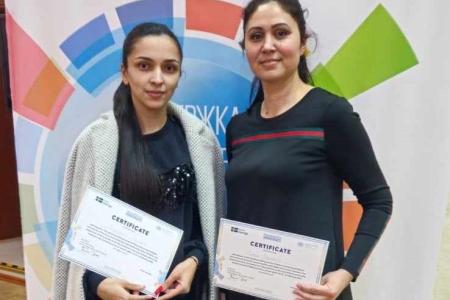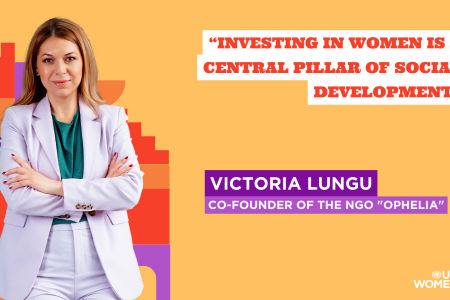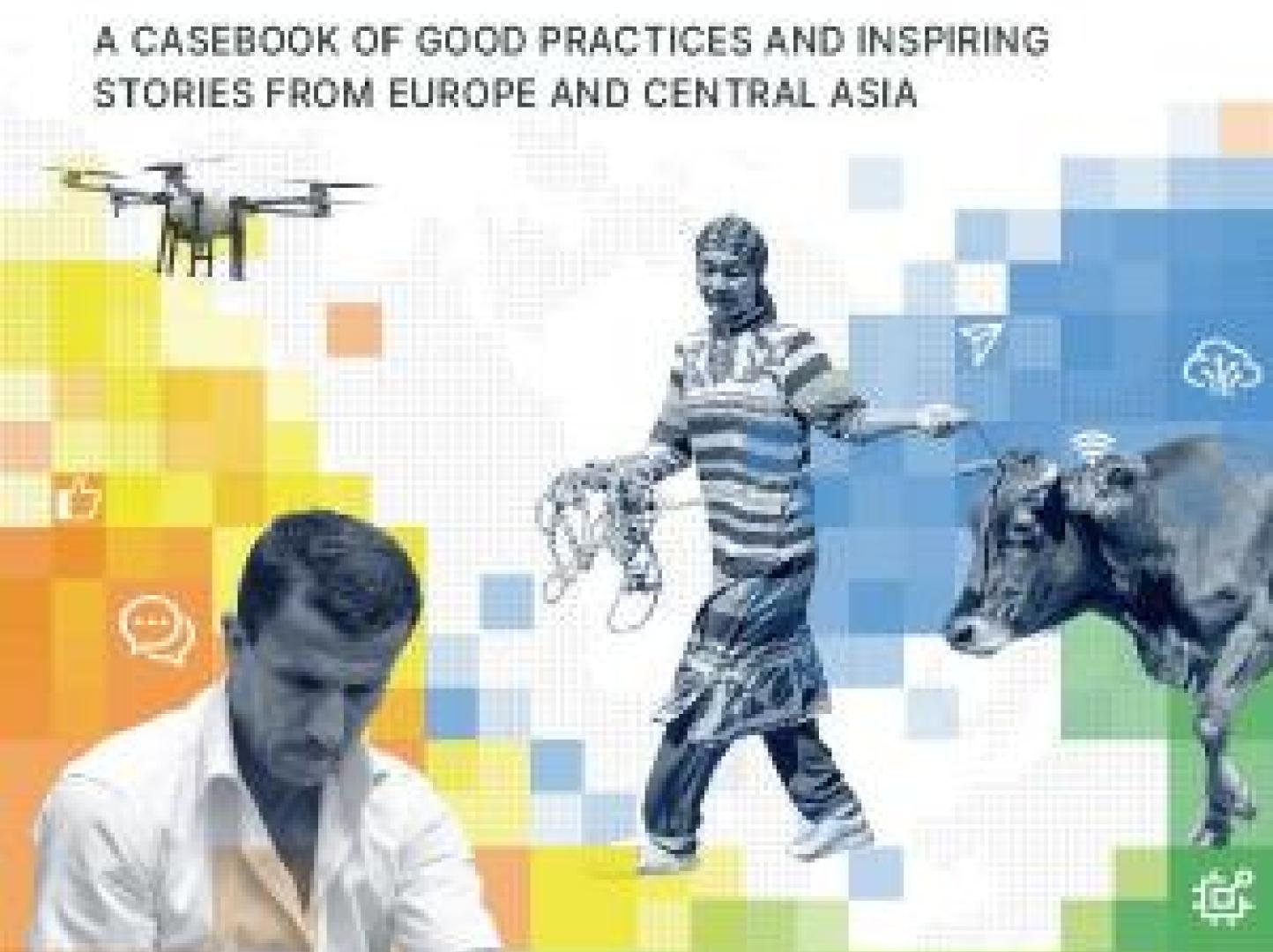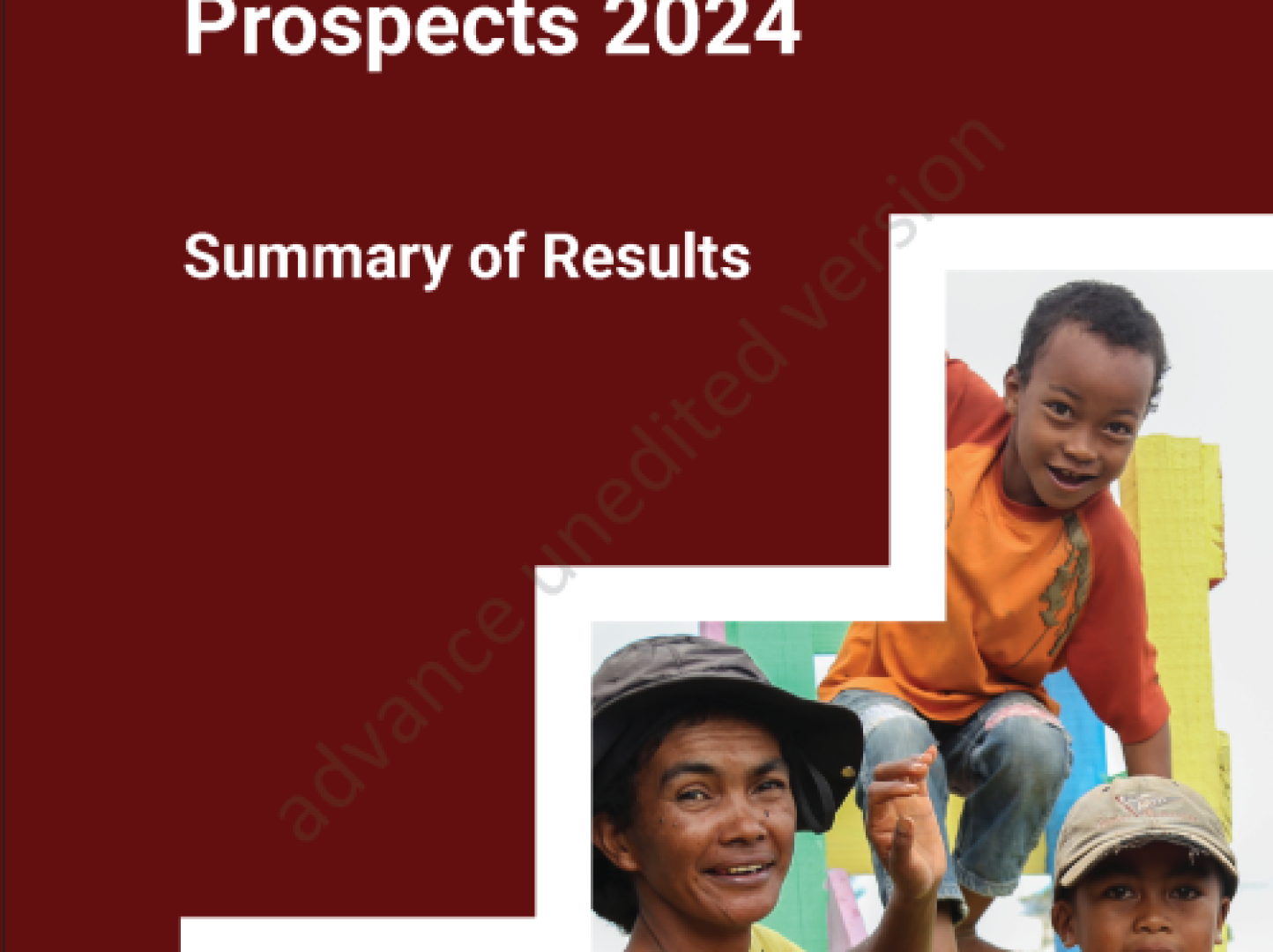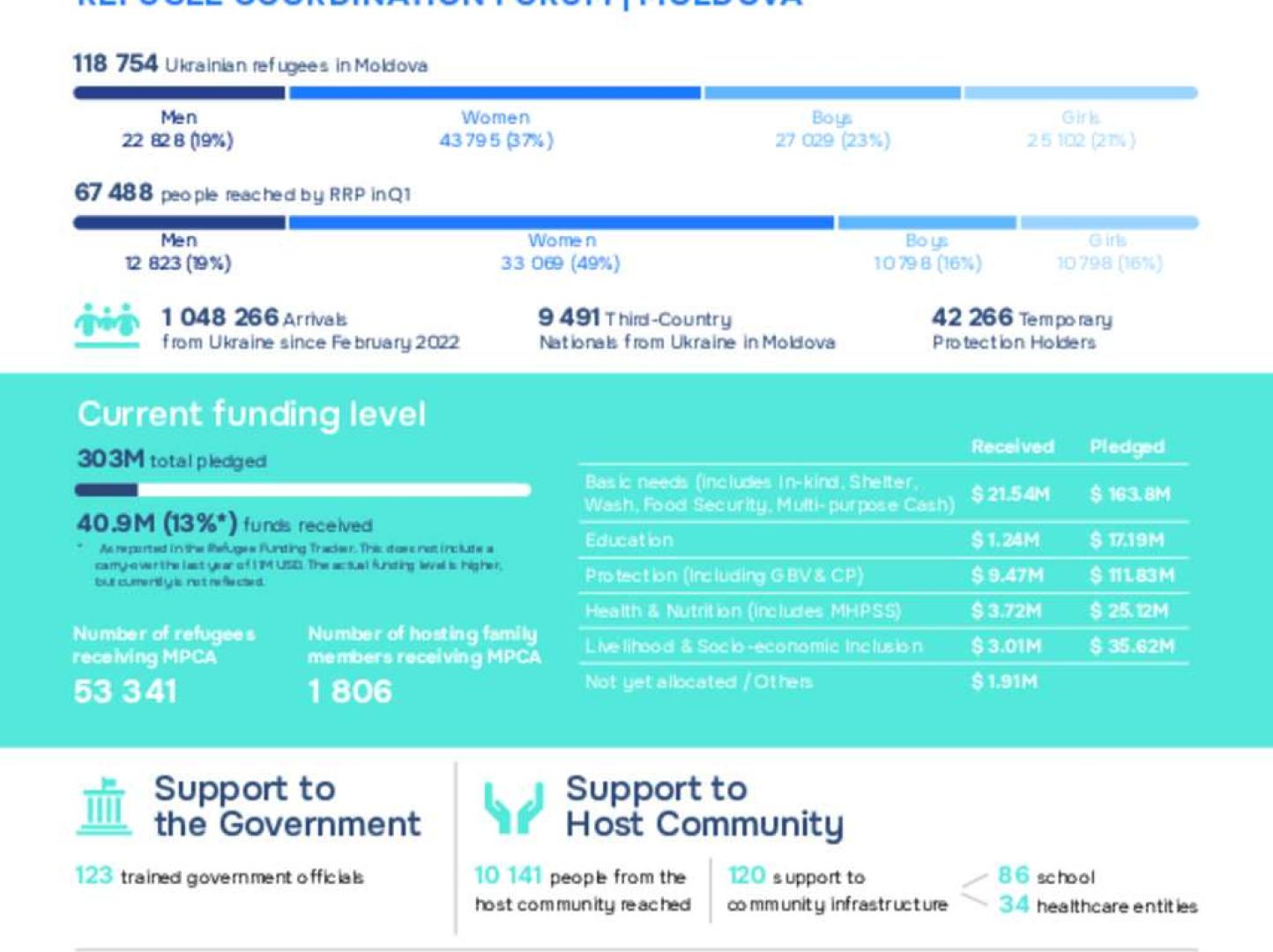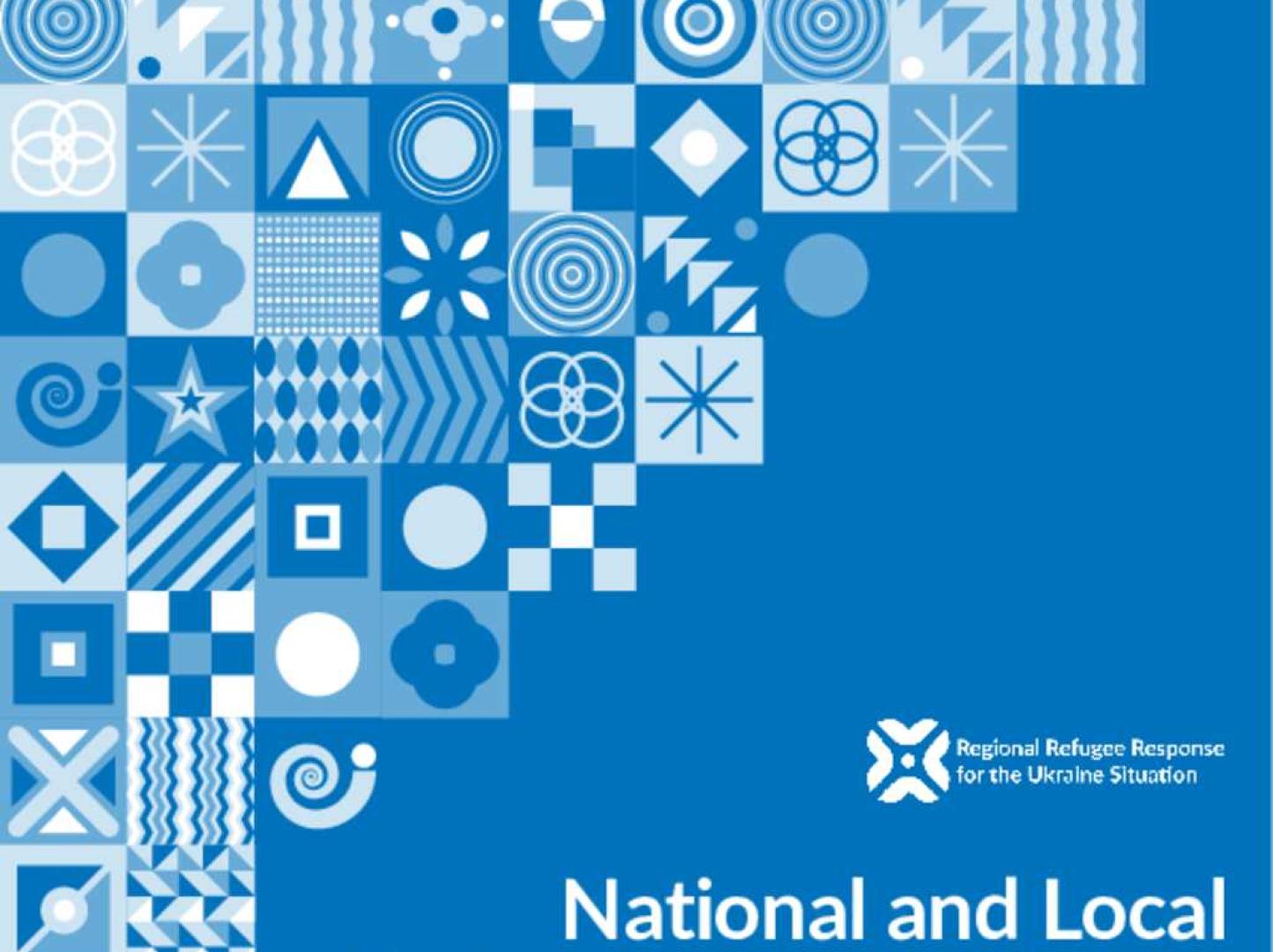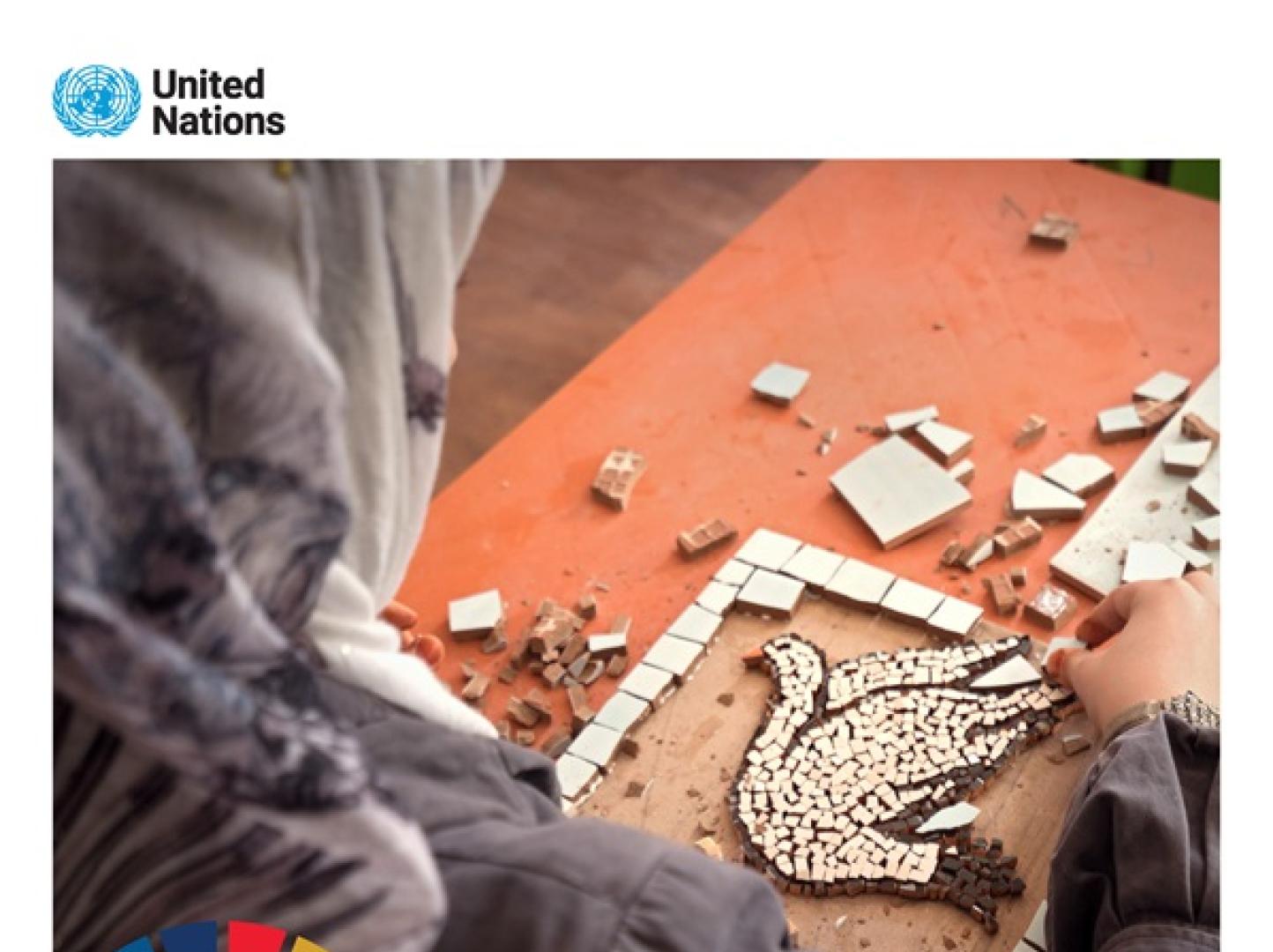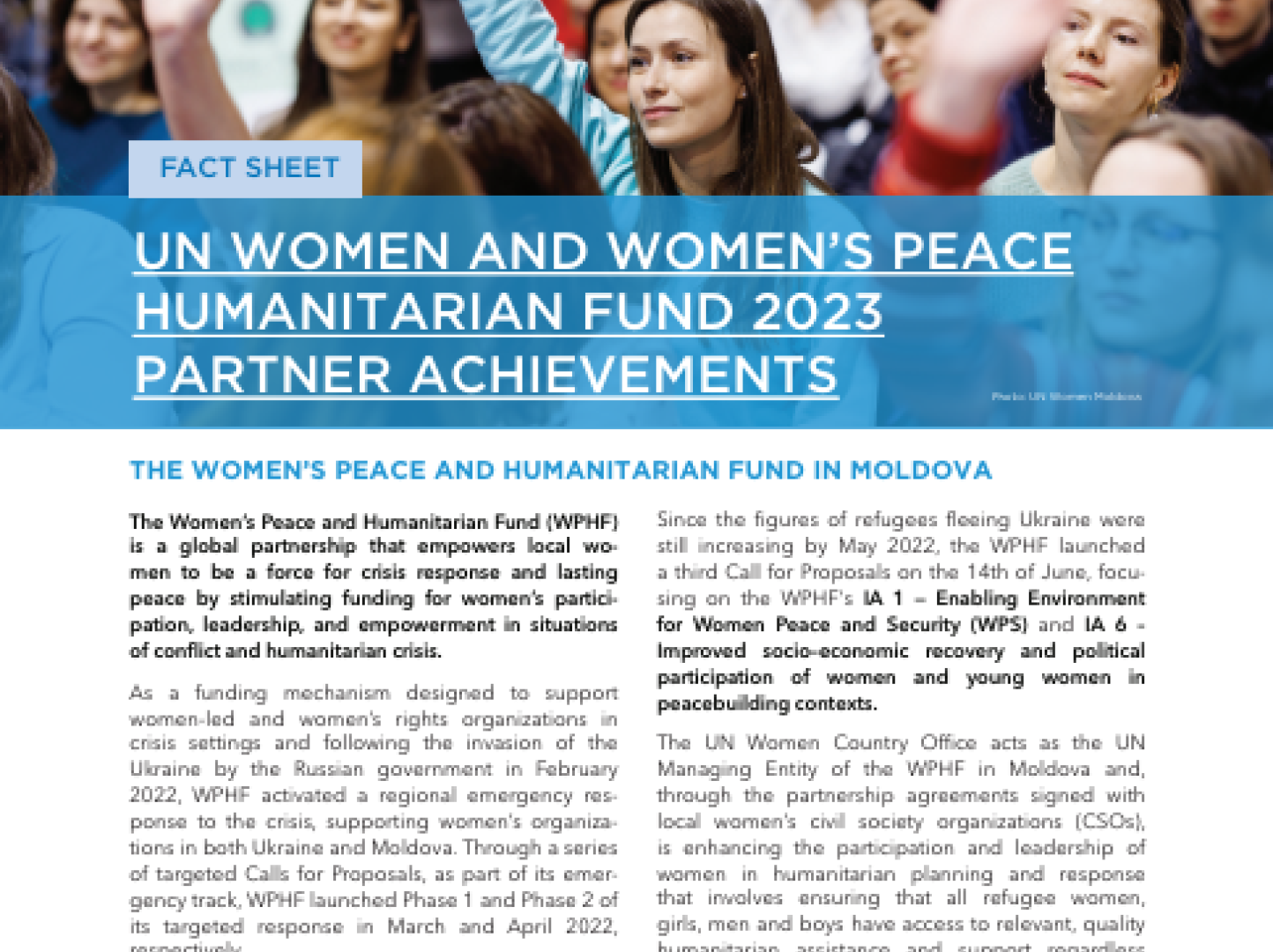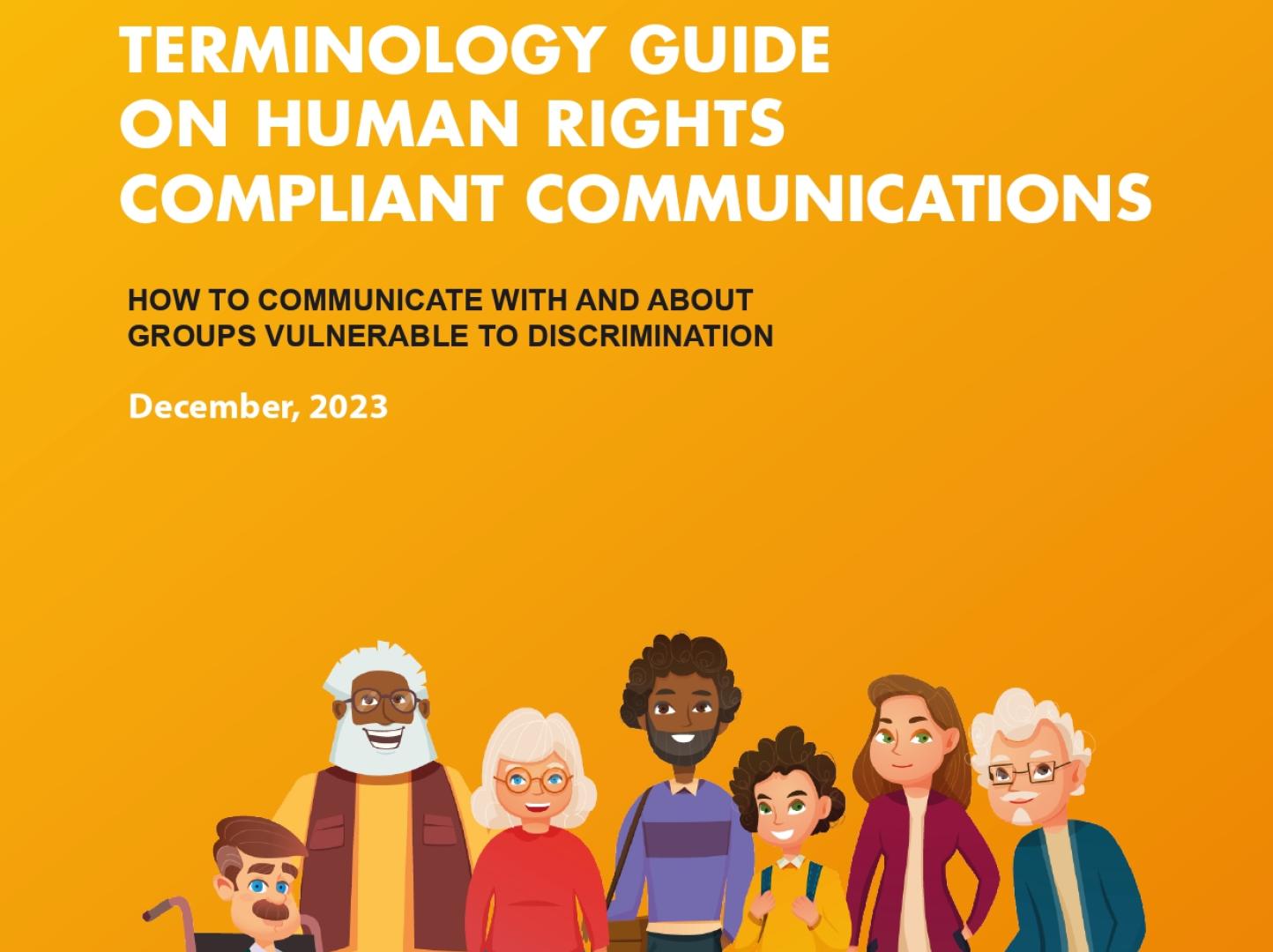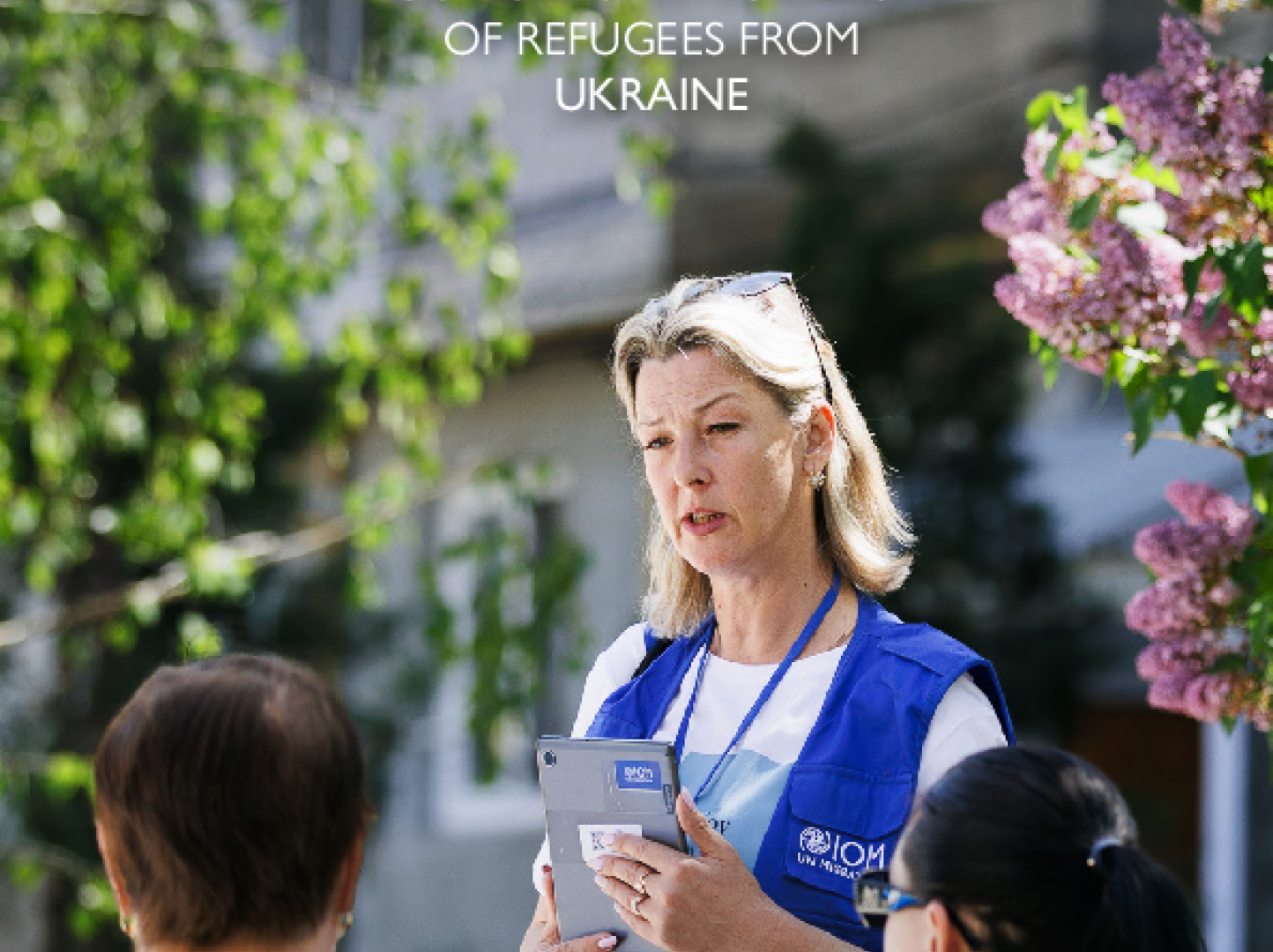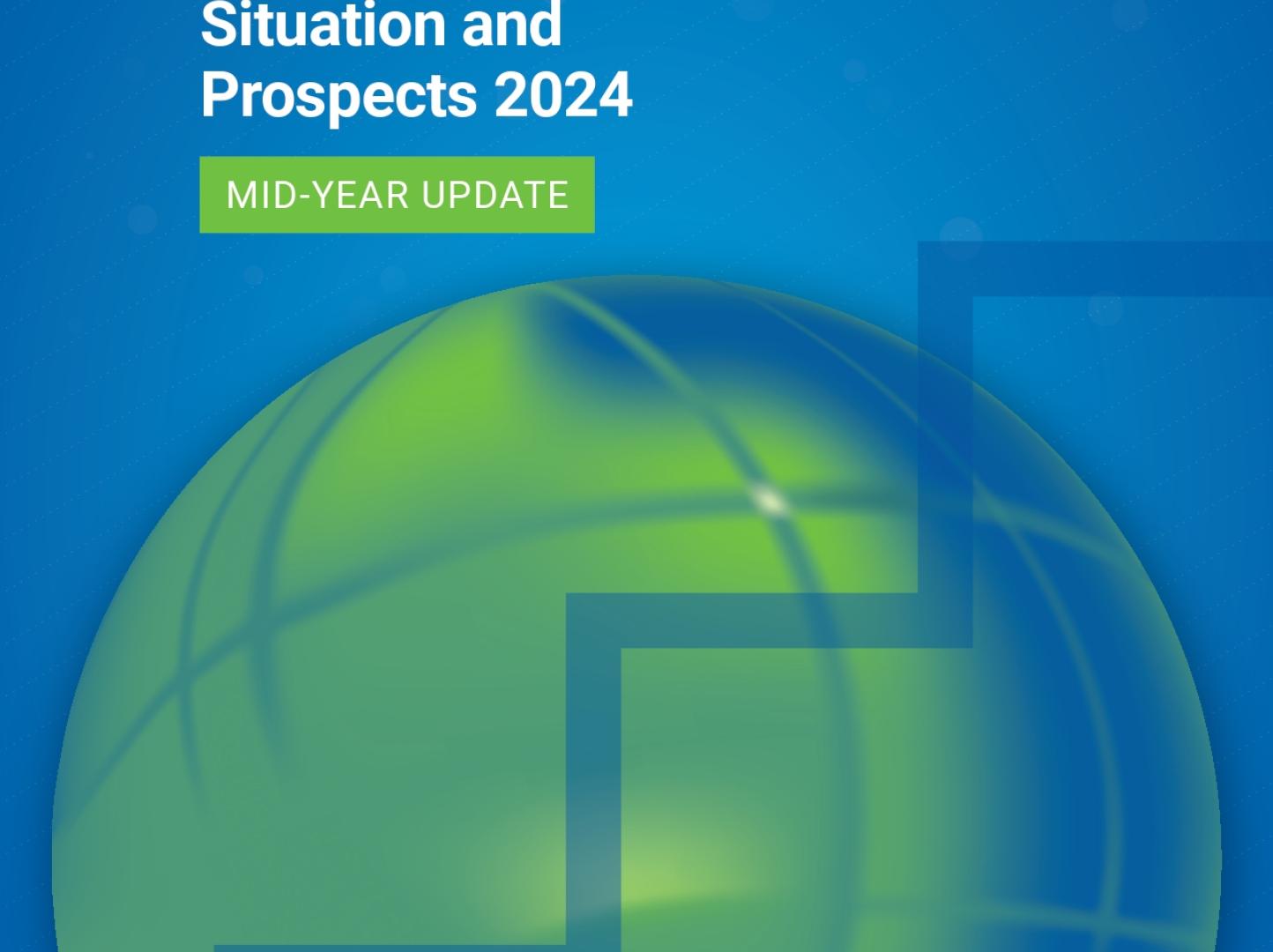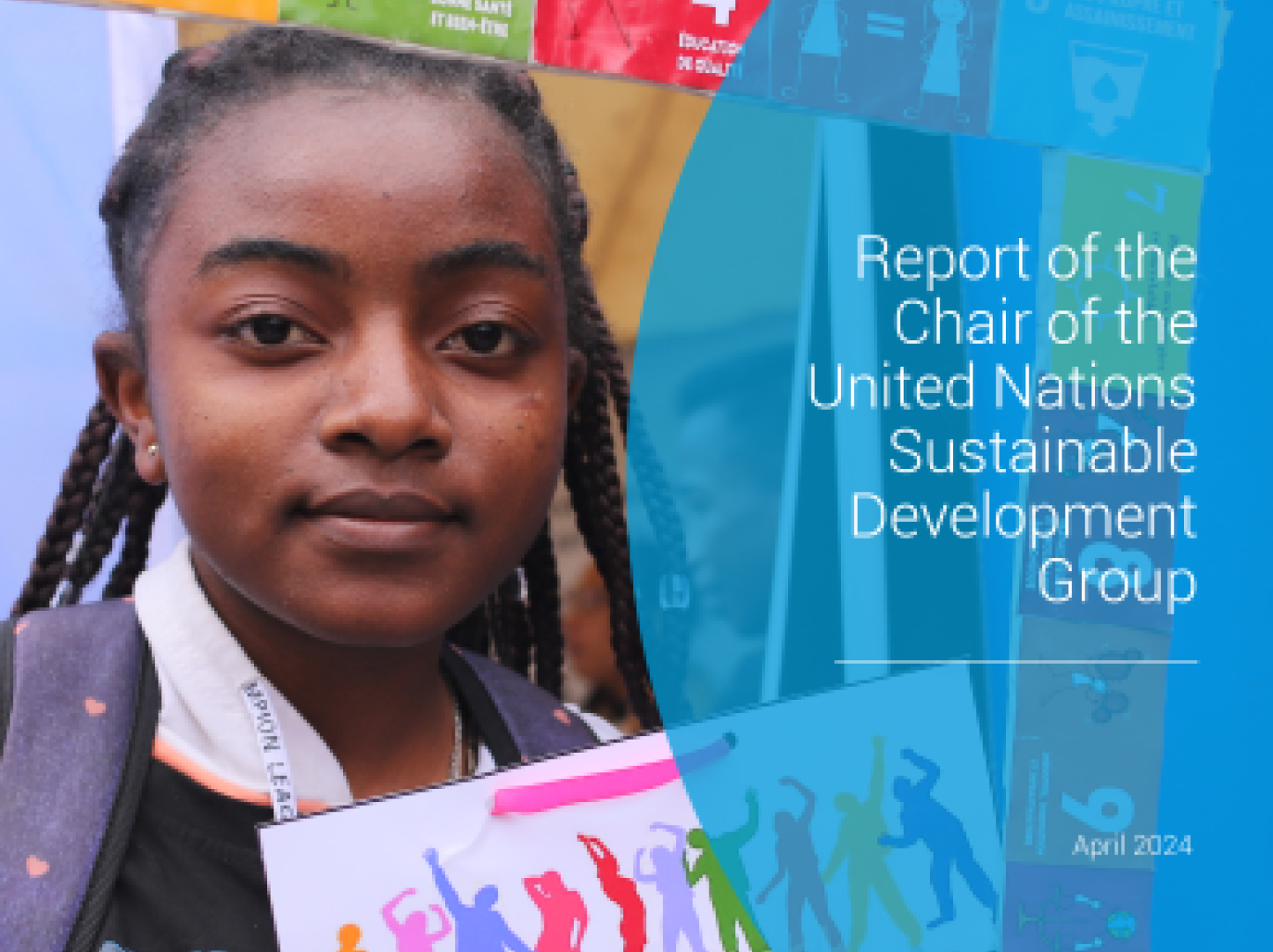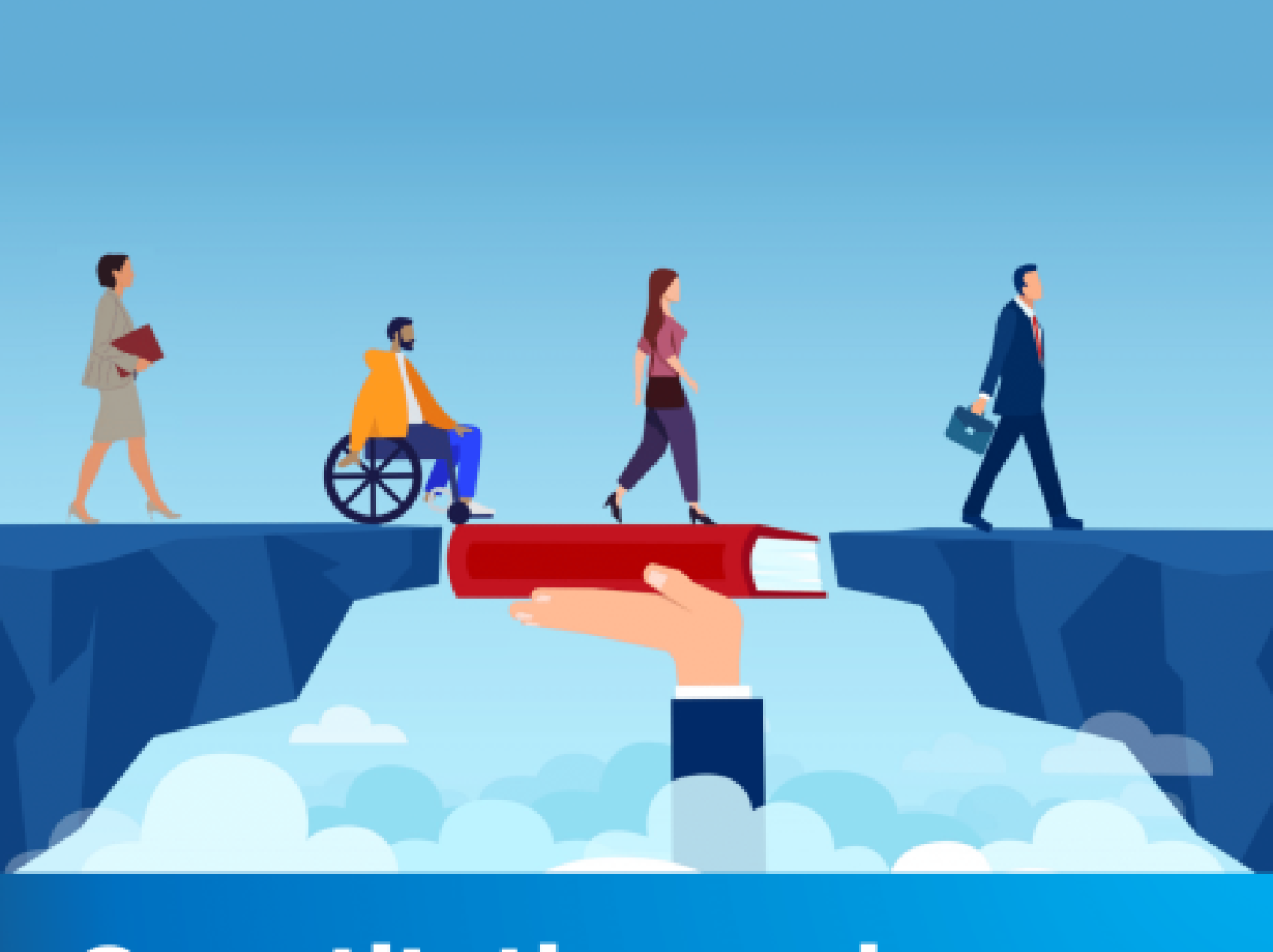Latest
Press Release
26 July 2024
Analysis of the table grape value chain will provide a roadmap for sector growth
Learn more
Press Release
25 July 2024
Criuleni Health Center has a modern radiology and medical imaging laboratory, thanks to support provided by the European Union and UNDP
Learn more
Press Release
24 July 2024
Deadline extended - Call for applications open for the 6th edition of the UN Diversity Internship Program for persons belonging to marginalized groups
Learn more
Latest
The Sustainable Development Goals in Moldova
In September 2015, the Republic of Moldova, alongside with 192 Member States of the United Nations committed to implement the 2030 Agenda for Sustainable Development that provides a shared blueprint for peace and prosperity for people and the planet, now and into the future having at its heart the 17 Sustainable Development Goals (SDGs).
The National Development Strategy "European Moldova 2030" (NDS) as well as the Government Action Plan ”Building a European Moldova” describe the short, medium and long-term strategic development vision of the country synchronizing the priorities, objectives, indicators and targets of international commitments taken by the Republic of Moldova, including the ones set in the 2030 Agenda for Sustainable Development, to the national context.
The Sustainable Development Goals are being monitored and evaluated by the United Nations Country Team through the Country Results Reports developed in coordination with the Government.
As of 2022, the Government has committed to monitor and report annually on the level of achievement of the SDGs in the country which allows the state to make necessary interventions to adjust and/or accelerate the pace of SDGs implementation.
Publication
14 June 2024
Programul privind îmbătrânirea activă și sănătoasă pentru anii 2023 - 2027
Programul privind îmbătrânirea activă și sănătoasă pentru anii 2023-2027 (în continuare – Program) este un document de politici publice pe termen mediu ce descrie obiectivele și acțiunile necesare a fi întreprinse pentru integrarea și implementarea principiului îmbătrânirii active, având ca impact sporirea șanselor populației Republicii Moldova de a îmbătrâni activ și sănătos.Elaborarea Programului este determinată de necesitatea consolidării eforturilor tuturor actorilor în vederea promovării politicilor care să răspundă nevoilor unei populații îmbătrânite. Programul vine să asigure realizarea angajamentelor asumate de Republica Moldova, în anul 2002, prin aderarea la Planul Internațional de Acțiune pentru Îmbătrânire de la Madrid, care își propune ca persoanele de pretutindeni să îmbătrânească în siguranță și demnitate și să continue să participe în societățile lor ca cetățeni cu drepturi depline (paragraful 10). În același timp, declararea de către Adunarea Generală a Națiunilor Unite a perioadei 2021-2030 ca fiind Decada Îmbătrânirii Sănătoase, impune necesitatea dezvoltării politicilor, în special în domeniul de sănătate pentru adaptarea acestuia la nevoile populației. Programul este elaborat și în conformitate cu Rezoluția Parlamentului European din 7 iulie 2021 referitoare la îmbătrânirea populației vechiului continent – posibilități și provocări legate de politica privind îmbătrânirea populației după 2020 (2020/2008(INI)) și Declarația Ministerială de la Roma, adoptată cu ocazia celei de-a cincea Conferințe ministeriale a Comisiei Economice pentru Europa a ONU privind îmbătrânirea (2022).
1 of 5
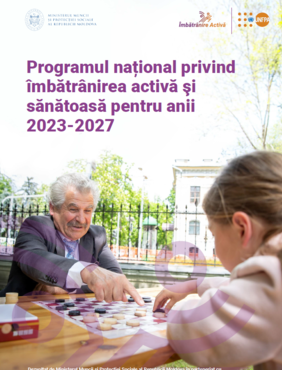
Publication
29 April 2024
Leveraging the Synergies of the EU Accession and the SDGs for the Sustainable Development of Moldova
The United Nations in Moldova, the Government of the Republic of Moldova and the EU Delegation have mapped the synergies between the EU accession process and the SDGs under the 2030 Agenda for Sustainable Development. According to the analysis, there is a strong complementarity and synergy between the EU accession agenda, the 2030 Agenda and SDGs as mutually reinforcing processes. The mapping shows that 128 SDG targets (76%) are connected to individual EU accession negotiation chapters or clusters. Moreover, out of 111 of the UN Sustainable Development Cooperation Framework 2023–2027 indicators, 93% are linked to the policy recommendations from the 2023 European Commission (EC) report.
1 of 5
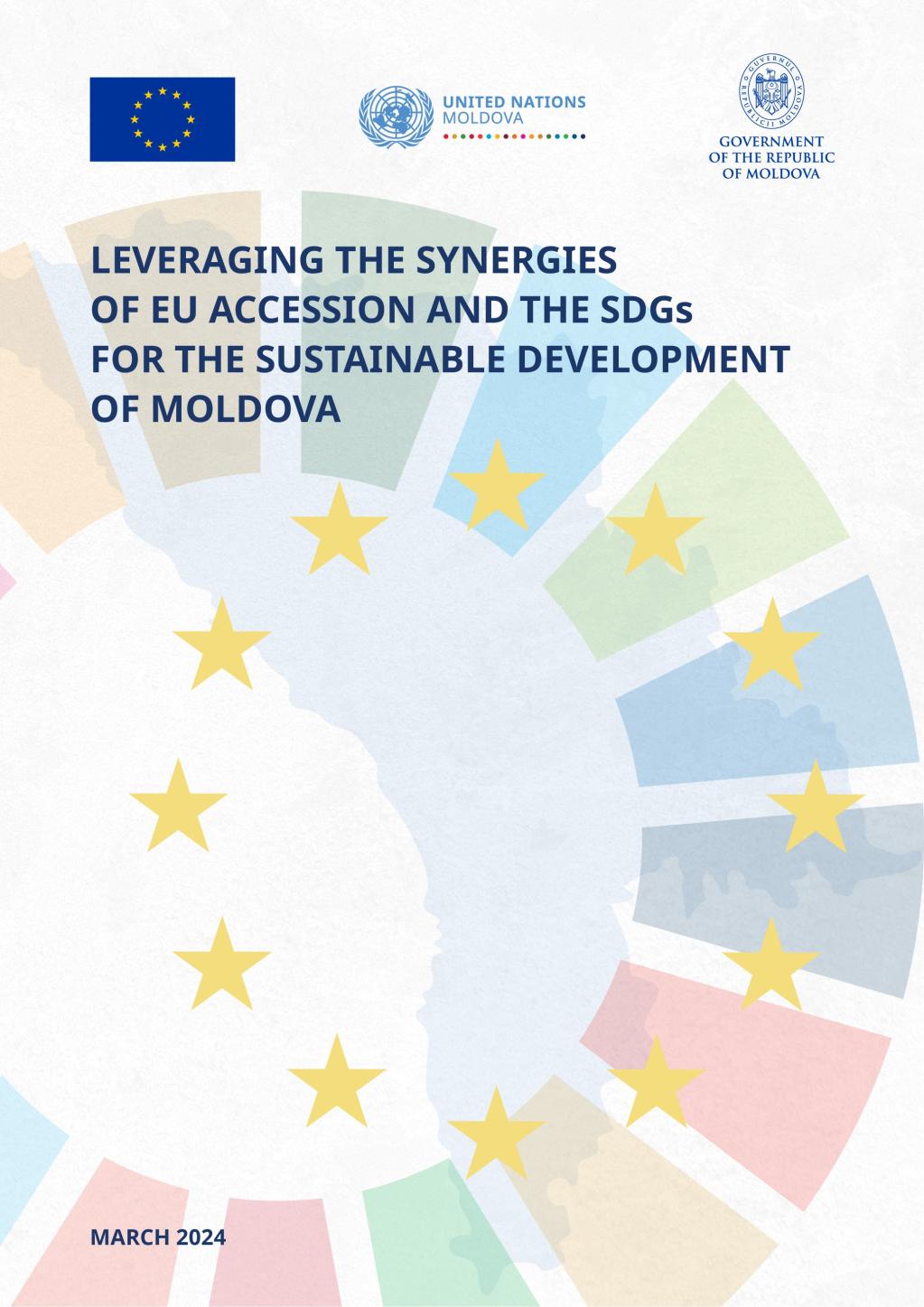
Publication
02 July 2024
The Sustainable Development Goals Report 2024
The Sustainable Development Goals Report 2024 details the significant challenges the world is facing in making substantial strides towards achieving the SDGs based on the latest data and estimates. It features areas with setbacks while also showcasing where tangible progress has been made, for instance, in reducing global child mortality, preventing HIV infection, and access to energy and mobile broadband. The report also hhlights where action must accelerate, particularly in critical areas undermining SDG progress - climate change, peace and security, inequalities among and between countries, among others.According to the report, with just six years remaining, current progress falls far short of what is required to meet the SDGs. Without massive investment and scaled up action, the achievement of the SDGs — the blueprint for a more resilient and prosperous world and the roadmap out of current global crises — will remain elusive. The lingering impacts of the COVID-19 pandemic, escalating conflicts, geopolitical tensions and growing climate chaos have severely hindered progress. The report details the urgent priorities and areas needed for stronger and more effective action to ensure the 2030 promise to end poverty, protect the planet and leave no one behind.
1 of 5
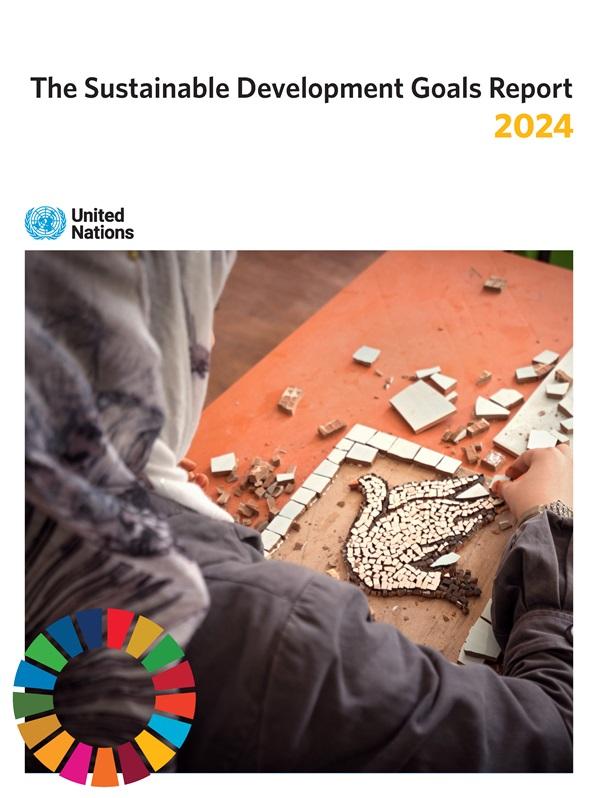
Publication
05 June 2024
Assessment of knowledge gaps in the electoral field and level of civic engagement
The overall objective of the survey was to identify knowledge gaps and to assess the level of civic engagement of the population with a focus on certain vulnerable groups.The survey was based on a poll in a sample, which was national-level and representative of general adult population, covered all regions of Moldova and included both urban and rural residents; it was supplemented by two boost samples – those of persons with disabilities and Roma people. The focus group was adult population aged 18 or older, persons with disabilities and Roma people from 160 localities. A total of 1,507 respondents were interviewed face-to-face at home, including 1,158 persons representing general public and additionally 192 ethnic Roma and 157 persons with disabilities. Thus, the applied method was that of layered semi-probability sampling with four sampling steps. The error margin for a sample of this size representing general public is ± 3%. The information was gathered between 27 October and 30 December 2023.The survey also included a qualitative component. Six focus group discussions were held to this end with an average of 7.5 participants per group. The total number of focus group discussions participants was 45. The discussions were held with the groups of young people representing rural and urban residents, women, older people, people with disabilities, and Roma people.
1 of 5
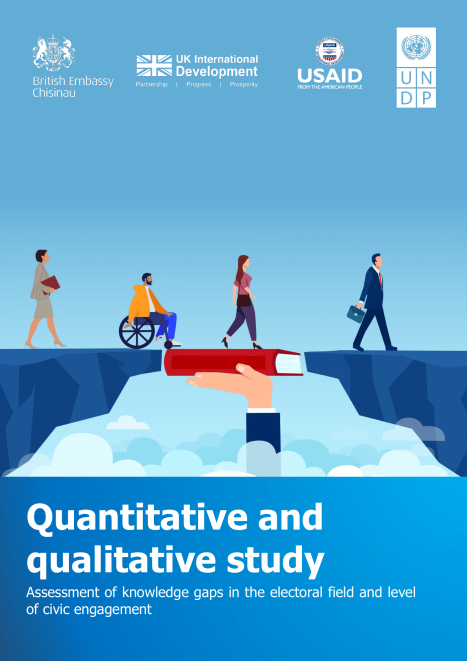
Publication
02 July 2024
Ukraine Situation - Moldova: Inter-Agency Operational Update (Quarter 1 - 2024)
The first quarter of 2024 witnessed important achievements regarding the overall situation of refugees from Ukraine in Moldova. On February 28, 2024, the Moldovan Government approved the extension of Temporary Protection (TP) until March 1, 2025. This decision addressed key advocacy points raised by the RRP sectors and partners in 2023, building upon the initial government decision from January 2023.
1 of 5
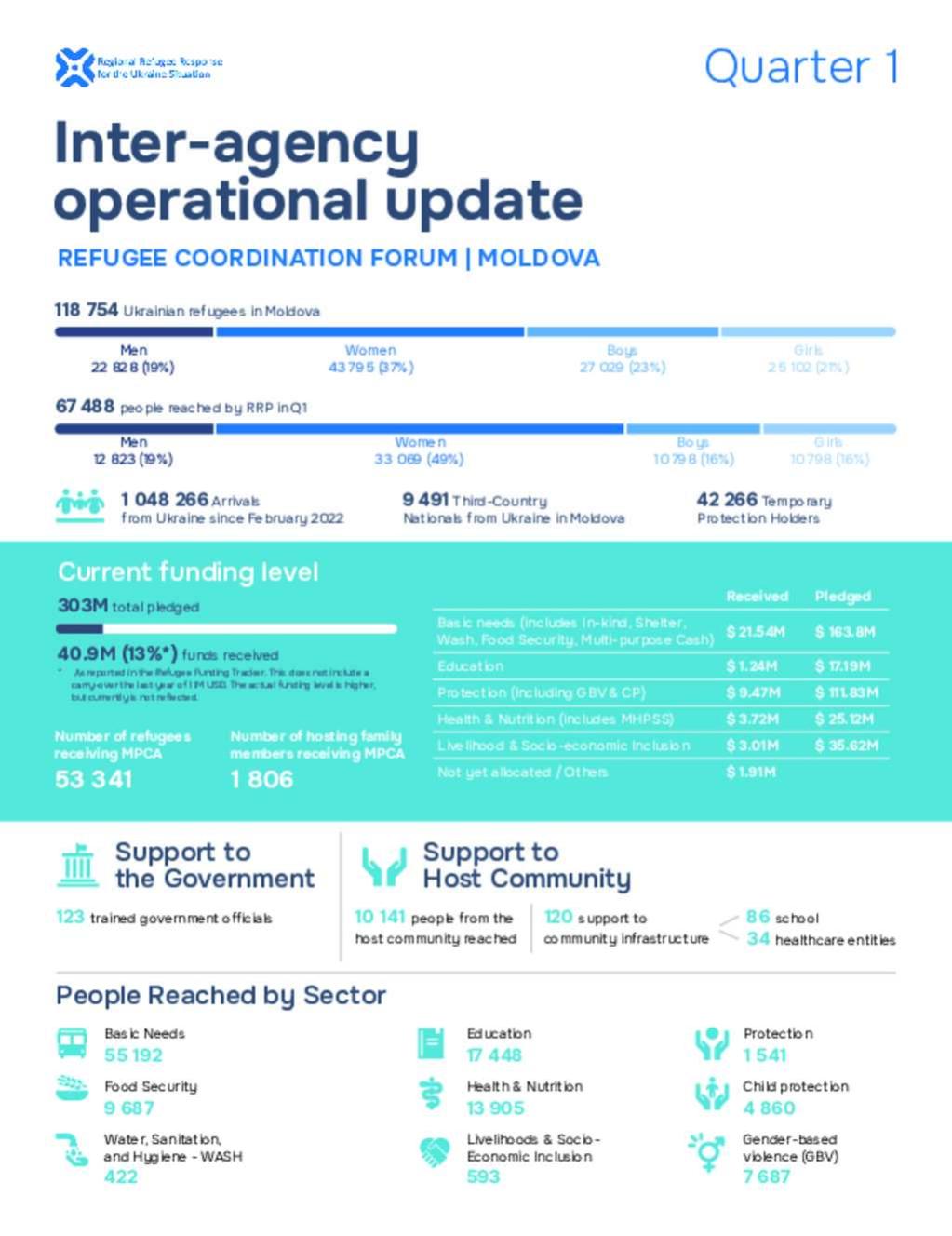
Story
05 July 2024
"This financial aid is crucial for Ukrainian mothers. It provides security"
It has been almost four months since Tatiana, 28, gave birth to David and over two years since the young mother last saw her family from Donetsk, Ukraine. Tatiana was 18 when her native city was first hit by rockets in 2014. "The war started in the region where we live. We were the first to come under fire," the young woman recalls about the attacks in Ukraine, which began ten years ago. The harsh truth is that the violence of the war became part of Tatiana's and her younger sister's adolescence and childhood. "Missiles flew over us, and later, we got used to the war," says Tatiana.However, in 2022, no one believed that missile attacks would return to their lives." People lived peacefully. Surprisingly, one morning, the bombing began," the young woman recounts. She was not in Ukraine but had gone to work in Poland for a few months. Because of the war, Tatiana did not return home. "I had nowhere to go back to. Our city was destroyed. My house suffered significant damage. My father and sister remained in Donetsk," says Tatiana. In October 2022, Tatiana sought refuge in Moldova at her future husband's house, in Pelinia village, Drochia district.Tatiana got a job as a social worker in a refugee centre, where she organized activities for Ukrainian children. This opportunity made her feel useful and integrated into the community. Later, she found out she was pregnant. "I tried to read less news, to work, and hope everything would be okay," says Tatiana, who gave birth to a boy at the Clinical Hospital in Balti, receiving all the support she needed from the health workers. "I was worried about how the birth process would be, but everything went well. The health workers treated us very well. I was constantly under the supervision of doctors, benefiting from their consultations and advice without being asked to pay for any services," Tatiana recounts.With the escalation of the war in Ukraine, UNICEF supported the authorities to ensure that all families with refugee children, including pregnant women, have the same access to primary medical services and social protection services, as Moldovan families do. Following this intervention, more than 200 refugee families benefited from national social protection programmes. With the support of the Swiss Federal Department of Foreign Affairs and through the National Social Insurance House, UNICEF provided a one-time birth allowance of 10,000 MDL and a monthly childcare allowance of 1,000 MDL to all mothers from Ukraine who fled the war. Later, in 2024, the amount of the one-time birth allowance was doubled, and all mothers from Ukraine received unique support of 20,000 MDL at birth.Tatiana is among the refugee mothers who received this assistance. "I found out about the financial aid from news and through friends. It is quite a large amount, given our expenses for raising the child. We haven't managed to spend it yet, but this money will be very useful because the boy is growing up quickly, and we need clothes and diapers. This financial aid for mothers from Ukraine is crucial. It provides security. Prices are extremely high. Many mothers do not have money for food, rent, etc.," says Tatiana, holding David in her arms.The young mother hopes that soon she will return home to reunite with her family, but not permanently. The war has left too many deep traumas, and she only wants a peaceful sky for her son. "I don't want him to see these bombings, destroyed houses. At 18, my hair turned grey. I want a better life for him," says Tatiana.Since the beginning of the war, around 120,000 Ukrainians have found safety in Moldova, including more than 52,000 children.
1 of 5
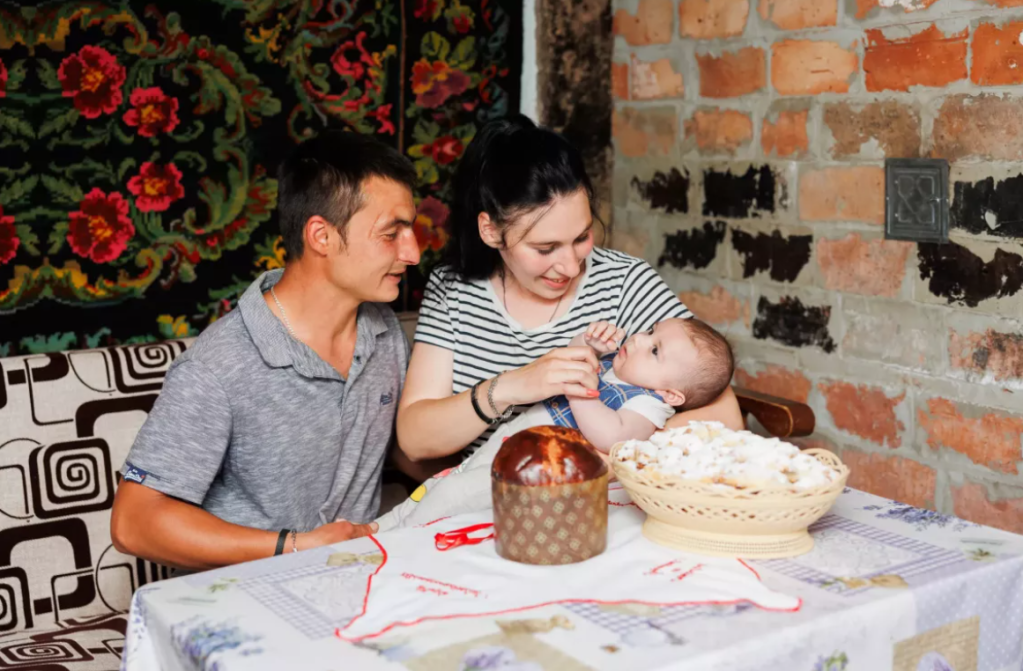
Story
04 July 2024
Storytelling and fairy tales to improve Ukrainian children's mental health and promote socialization
The story of Anastasia, a Ukrainian refugee, and her intuition and determination to run an educational centre in Chisinau, with IOM support, to enhance the mental health of Ukrainian children and foster their social relationships through storytelling and fairy tales, tailored to their needs.Anastasia, 37, is originally from Mykolaiv, Ukraine, one of the cities hardly hit by Russian bombs at the start of the full-scale war in Ukraine.In the first hours of the attack, Anastasia was at home with her two children, Polina, 11, and Vladimir, 7. She heard the loud blasts and immediately took the decision to look for a safe place nearby, hoping for the end of that nightmare.Yet, the days passed. The shelter, lacking water and electricity, protected her children from the explosions but not from their fears. After two weeks, at night, in the darkness of the shelter and in a sky lit by explosions, Polina approached her mother and whispered in her ear: "take me and Vladimir to a safer place".The next morning, Anastasia, Polina and Vladimir fled Ukraine to the Republic of Moldova. They went directly to Chisinau where a relative who lived in the capital opened the door of her apartment to host them.
“We stayed there for a month. Then I decided to rent an apartment for myself and bring my mother and dog from Ukraine. A place was offered to us at a very advantageous price after the owner learned about our story. He is a Moldovan man and was very kind to us.”Anastasia's story is one of courage, determination, intuition and resilience.A month after arriving in Moldova, she found a job as a music teacher in a centre for Ukrainian refugees, drawing on her 30 years of experience as a pianist.Her work mainly involved helping Ukrainian children in need of mental health support. During the lessons, some of them were aggressive, others hid under the tables or were unable to socialize with the other children.One day, a colleague asked Anastasia to use storytelling as a tool to help relieve the children and their parents’ traumas.“It was an extraordinary experience that gave me so much. When we started with storytelling, our goal was mainly to speak Ukrainian with the children and tell them about Ukrainian folklore. The impact of storytelling on children went beyond all expectations and I realized that I could do much more.”Recognizing the power of storytelling and her own professional experience with children since she lived in Ukraine, Anastasia decided to found an educational centre in Chisinau called Soulmate.The first challenge she faced was finding a suitable place in the city with a rental cost she could afford. Starting over in a new country, she also had to cover the costs of equipping the centre with furniture, decoration, and materials for activities. Despite the difficulties, she managed to open Soulmate.This was when Anastasia learned about IOM’s small business grants scheme for Ukrainian women entrepreneurs, implemented under the project “Ukraine Response to support refugees from Ukraine across Europe”, funded by the US Department of State’s Bureau of Population, Refugees and Migration (PRM).After submitting a proposal to IOM, she was awarded a small grant in May 2024 to support her with the costs of improving and growing her business, recognizing its potential impact for Ukrainian refugees and their hosting community. This allowed her to expand the activities offered at Soulmate and reach a larger number of children and parents.
“I took the risk, and I made it.”Today, Soulmate offers music courses for children, where they learn to play the piano, ukulele and guitar. An English club for Ukrainian teenagers was founded with the assistance of Peace Corps volunteers, and transformative games were created by a Ukrainian psychologist. Anastasia manages the Centre and continues her work with storytelling.“I started writing my first fairy tales on Mother's Day. Sometimes, during the lessons, we discuss these fairy tales with colleagues and change the theme based on the children's behaviours and emotions, so that the stories are more suited to their needs.”
Anastasia and her team have already created 20 original stories. As they share them during the lessons, they observe the children’s expressions and reactions to understand how the stories influence their relationships with others."Sometimes children don't understand what is good and what is bad, and through these fairy tales they learn to build relationships and respect each other."Although the lessons at Soulmate are not in Romanian, Moldovan children have been recently starting to attend them, as parents who speak Ukrainian have volunteered to translate.“Ukrainian and Moldovan children have similar wishes, that is to socialize, carry out relaxing activities, and receive emotional support. They are very close to each other."Anastasia thinks big and makes it happen. For the next few months, the Centre is also organizing a summer camp, where children will also be able to write their own fairy tales.No doubts: “We will print the book with their fairy tales."***
Soulmate is one of the 28 small businesses owned by Ukrainian refugees and Moldovans which received an IOM small business grant thanks to the generous financial support of the US Department of State’s Bureau of Population, Refugees and Migration (PRM), within the “Ukraine Response to support refugees from Ukraine across Europe” project.
“We stayed there for a month. Then I decided to rent an apartment for myself and bring my mother and dog from Ukraine. A place was offered to us at a very advantageous price after the owner learned about our story. He is a Moldovan man and was very kind to us.”Anastasia's story is one of courage, determination, intuition and resilience.A month after arriving in Moldova, she found a job as a music teacher in a centre for Ukrainian refugees, drawing on her 30 years of experience as a pianist.Her work mainly involved helping Ukrainian children in need of mental health support. During the lessons, some of them were aggressive, others hid under the tables or were unable to socialize with the other children.One day, a colleague asked Anastasia to use storytelling as a tool to help relieve the children and their parents’ traumas.“It was an extraordinary experience that gave me so much. When we started with storytelling, our goal was mainly to speak Ukrainian with the children and tell them about Ukrainian folklore. The impact of storytelling on children went beyond all expectations and I realized that I could do much more.”Recognizing the power of storytelling and her own professional experience with children since she lived in Ukraine, Anastasia decided to found an educational centre in Chisinau called Soulmate.The first challenge she faced was finding a suitable place in the city with a rental cost she could afford. Starting over in a new country, she also had to cover the costs of equipping the centre with furniture, decoration, and materials for activities. Despite the difficulties, she managed to open Soulmate.This was when Anastasia learned about IOM’s small business grants scheme for Ukrainian women entrepreneurs, implemented under the project “Ukraine Response to support refugees from Ukraine across Europe”, funded by the US Department of State’s Bureau of Population, Refugees and Migration (PRM).After submitting a proposal to IOM, she was awarded a small grant in May 2024 to support her with the costs of improving and growing her business, recognizing its potential impact for Ukrainian refugees and their hosting community. This allowed her to expand the activities offered at Soulmate and reach a larger number of children and parents.
“I took the risk, and I made it.”Today, Soulmate offers music courses for children, where they learn to play the piano, ukulele and guitar. An English club for Ukrainian teenagers was founded with the assistance of Peace Corps volunteers, and transformative games were created by a Ukrainian psychologist. Anastasia manages the Centre and continues her work with storytelling.“I started writing my first fairy tales on Mother's Day. Sometimes, during the lessons, we discuss these fairy tales with colleagues and change the theme based on the children's behaviours and emotions, so that the stories are more suited to their needs.”
Anastasia and her team have already created 20 original stories. As they share them during the lessons, they observe the children’s expressions and reactions to understand how the stories influence their relationships with others."Sometimes children don't understand what is good and what is bad, and through these fairy tales they learn to build relationships and respect each other."Although the lessons at Soulmate are not in Romanian, Moldovan children have been recently starting to attend them, as parents who speak Ukrainian have volunteered to translate.“Ukrainian and Moldovan children have similar wishes, that is to socialize, carry out relaxing activities, and receive emotional support. They are very close to each other."Anastasia thinks big and makes it happen. For the next few months, the Centre is also organizing a summer camp, where children will also be able to write their own fairy tales.No doubts: “We will print the book with their fairy tales."***
Soulmate is one of the 28 small businesses owned by Ukrainian refugees and Moldovans which received an IOM small business grant thanks to the generous financial support of the US Department of State’s Bureau of Population, Refugees and Migration (PRM), within the “Ukraine Response to support refugees from Ukraine across Europe” project.
1 of 5
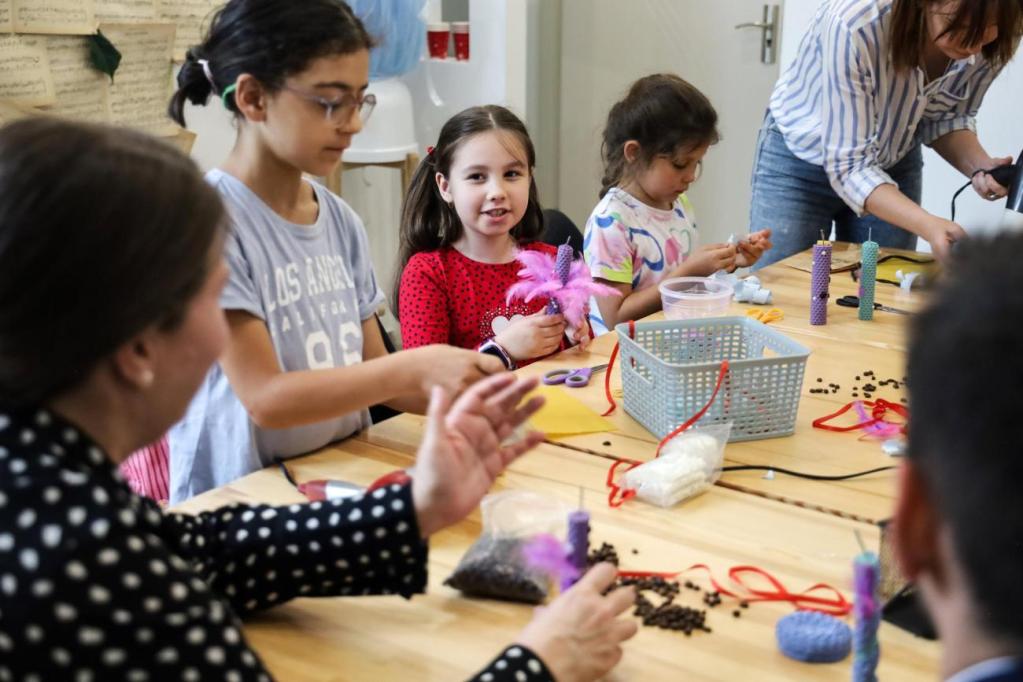
Story
04 July 2024
Support for animals means support for families in the Republic of Moldova
Spouses Mihail and Vera Gradinaru were born and grew up in Cirpesti, a village situated about 120 kilometers away from the capital of the Republic of Moldova, Chisinau. Set amidst land for cultivating and pastures for grazing, this village of just about 600 households is one where families predominantly rely on farming or raising cattle. After knowing each other for many years, Mihail and Vera got married and now have five children. Both parents work in the village, Vera as a kindergarten teacher’s assistant and Mihail as a farmer. Cows, pigs, goats, sheep, rabbits and poultry fill up the backyard of their house.The Gradinarus’ youngest daughter, Livia, still lives with them, as does their daughter, Alina, who just recently had a baby, and whose husband is temporarily working abroad.It is a full house, but both Vera and Mihail are used to this, having grown up with many siblings themselves. And the spouses are determined to give their children schooling and the option of obtaining the type of job they want to do.“We couldn't afford studies. I come from a family with eleven children, while my wife was one of four. We had to start working from a young age. Nobody really asked us what we wanted to do in life. That's why we try to help our children as much as we can, so that at least they have a profession and can get by easier, either in the village, or wherever their destiny takes them,” describes Mihail.Mihail on the other hand continues the work that his parents did and is content keeping livestock. “We have always had animals, this is what our parents did, this is what we do,” explains Mihail. He and Vera are particularly tied to their two cows: Marta and Stella. As the spouses say, these cows are the family’s greatest support. They are vital for their family’s nutrition, and the milk also serves as payment for helpers who work on their farm or house.“May our cattle be healthy! Otherwise, how are we going to manage?” Mihail exclaims.In 2022, the country faced an extreme drought that led to 50- 60 percent losses in some of their major agricultural products like sunflower, corn and wheat. With this loss of income and increased input prices, families with animals couldn’t buy the necessary animal feed. In response, the Food and Agriculture Organization of the United Nations (FAO) distributed cattle fodder to 2 638 families across five districts in 2023. Each family received between 350 and 375 kg of fodder, which was vital in addressing existing feed shortages.The activity is part of a project implemented jointly with the United Nations Development Programme, and financed by the Austrian Development Agency — the operational unit of Austrian Development Cooperation — and the Government of Switzerland.According to the estimates of the Government of the Republic of Moldova, 70 percent of the country’s small farms were already suffering from a lack of resources, inputs and arid weather conditions, and the war in Ukraine further impacted the prices of agricultural inputs, most of which the Republic of Moldova imports from Russian and the Ukraine. Fertilizers, fuel and seeds became three to five times more expensive than in 2021. Life’s challengesAmidst these challenges, Mihail also had to undergo several spinal surgeries. Although he is full of energy and enthusiasm, his mobility is reduced, and he can no longer do all the physical labour he once did.“Before the surgeries I also used to work in the forest, providing my family with wood. Now I am content only with what I can do around the house and with the cattle in the pasture.”The FAO support for their animals was a huge assistance for the family. “Animals, like children, have their own expense.... And when you can hardly provide bread for your children, it’s obviously even harder to buy animal feed,” describes Vera.With the fodder donation, Mihail and Vera can use some of the money saved to take care of other vital expenses. For some time, the family had been struggling to repair the leaky roof of the old house in which they live. They used the extra cash they saved on fodder to pay for construction materials and repay some of the debts they have due to the house repairs.“It’s the first time we get animal feed. You know, it helps a lot,” adds Vera.In early 2024, funding from the Government of Japan allowed FAO to distribute animal fodder to an additional 2 950 livestock herders. By early 2025, with the funds provided by the Austrian Development Cooperation and Switzerland, FAO will secure animal feed for another 4 880 families that depend on their cattle. This ensures complete animal feed coverage for all the drought-affected southern districts of the Republic of Moldova. FAO is also supplying rural communities with essential agricultural resources, such as alfalfa seeds to grow for feed and vegetable seed kits. These resources, along with establishing 15 Farmer Fields Schools that teach climate-smart vegetable production, will help families be more resilient to drought and other extreme climate events.Throughout 2023, the cost of imported agricultural inputs remained very high, resulting in high production costs. At the same time, prices of agricultural goods dropped dramatically throughout the year. This has resulted in a 30 percent decrease in revenue for rural families compared to the last five-year average.
1 of 5
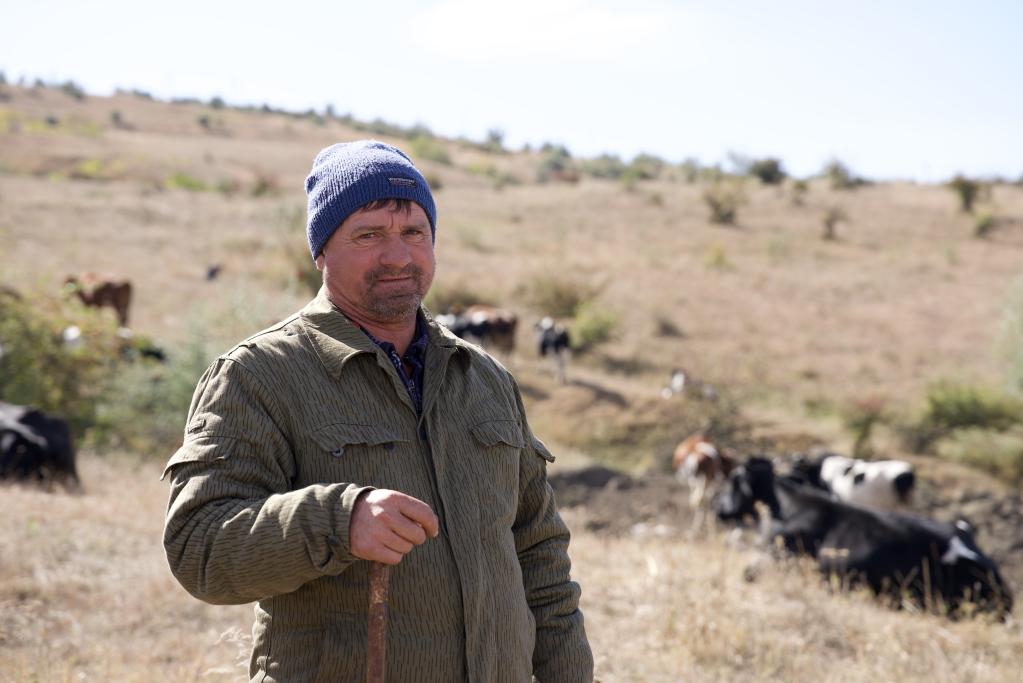
Story
28 June 2024
"Micul Odoraș"--Meet Mariana Grigorenco, the force behind the first home-based daycare for small children in Moldova
She has experience working with children with special needs, including autism and various disabilities. She loves being around children, and when she learned about the possibility of receiving support from the ILO to set up a family-type daycare at home, she didn't hesitate and signed up. With support from the partners at the Association of Women Entrepreneurs of Moldova (AFAM), Mariana went through all the training stages and obtained the necessary certificates to launch this alternative service. She cleared out one of the four rooms in her house, renovated it, and furnished it with beds and cabinets for children, transforming it into "Micul Odoraș" or „Little Treasures” in Romanian–the first alternative family-type daycare at the caregiver's home in the town of Bălți and in the entire Republic of Moldova. This initiative was made possible thanks to the National Programme on Care Services for Children Under Three, implemented by the Ministry of Labour and Social Protection. The lack of a sufficient number of affordable early education and care services for children is a major obstacle to women's employment in Moldova, where the participation rate in early education and care services for children aged 0 to 2 years was 10 percent in 2021/22, compared to the EU27 average of 32 percent. Expanding alternative care services will allow mothers to return to work whenever they wish, and Mariana, along with 26 other participants in the ILO and AFAM project, has become the entrepreneur of her own business. Childcare services offer numerous benefits for women, by increasing their income upon returning to work and for families, by reducing unpaid care work by parents; and for the country's economy, by creating new jobs. According to legislation, it is permitted to form groups of up to 5 children or 3 if one of them has disabilities. Still, Mariana says she will initially accept only three children in the space arranged for them. The children in her care are under two years old and. In the first week, they stayed for one or two hours to adjust more easily. This is also her guiding motto:”„Gentle accommodation, without stress and tears”. Parents have a harder time adjusting than the children," Mariana says with a smile. After the adjustment period, the children will stay here all day, from 7:30 AM to 5:30 PM, while their parents can go to work without worry. "I have a plan of activities for each day, but the main activity at this age is free play. I will guide the children in their play and involve them in creative activities appropriate for their age. I have set up a space for sand and water play, which will help in their development, while their mothers return to work and continue to progress in their fields," Mariana says enthusiastically.Mariana's passion for working with children comes from her family. Her grandmother was a nursery educator, and her aunt and cousin are teachers. "Many children knew what they wanted to be when they grow up. I had no desires or plans, but in the neighbourhood, I organized all sorts of activities and loved involving all the children.""Micul Odoraș" is not just a play space but, more importantly, a space for development Since she also has qualifications in speech therapy, Mariana's daycare focuses on children with speech development deficiencies. Her professional journey and the launch of the daycare were not accidental, she says. Her younger son, who is now 12 years old, suffers from asthma, and she often had to stay at home with him. To be with him as much as possible without giving up the profession she loves so much, Mariana started working from home, especially during the pandemic, teaching English, Romanian, or various other developmental activities to children with special needs. From there, it was just a step to "Micul Odoraș."Obtaining the necessary certificates for launching this service and setting up the space took six months. During this time, Mariana, along with 26 other men and women, participated in training workshops organized by the Association of Women Entrepreneurs of Moldova, with support from the ILO. Experts involved in the Programme developed a detailed guide explaining the legal provisions and steps for launching this type of alternative childcare service for children under three years old and mentored participants in obtaining the license and certificates. It was not difficult for her to form the group of children, but she acknowledges that many parents are skeptical about these alternative services and prefer nannies or private kindergartens. "Parents who enrolled their children in Micul Odoraș have lived abroad and seen how such services work there, and they trusted us," Mariana explains.The family-type daycare is a new type of alternative care service, regulated by a new law of alternative childcare services. The "Micul Odoraș" daycare was launched in the framework of a partnership between the ILO and the Association of Women Entrepreneurs of Moldova (AFAM), with financial support from Sweden. The International Labour Organization estimates that investment in childcare services could generate over 116,000 jobs in Moldova by 2030, including about 29,000 direct jobs in childcare, over 69,000 direct jobs in long-term care, and nearly 19,000 indirect jobs, such as cleaning and cooking, in non-care sectors.
1 of 5
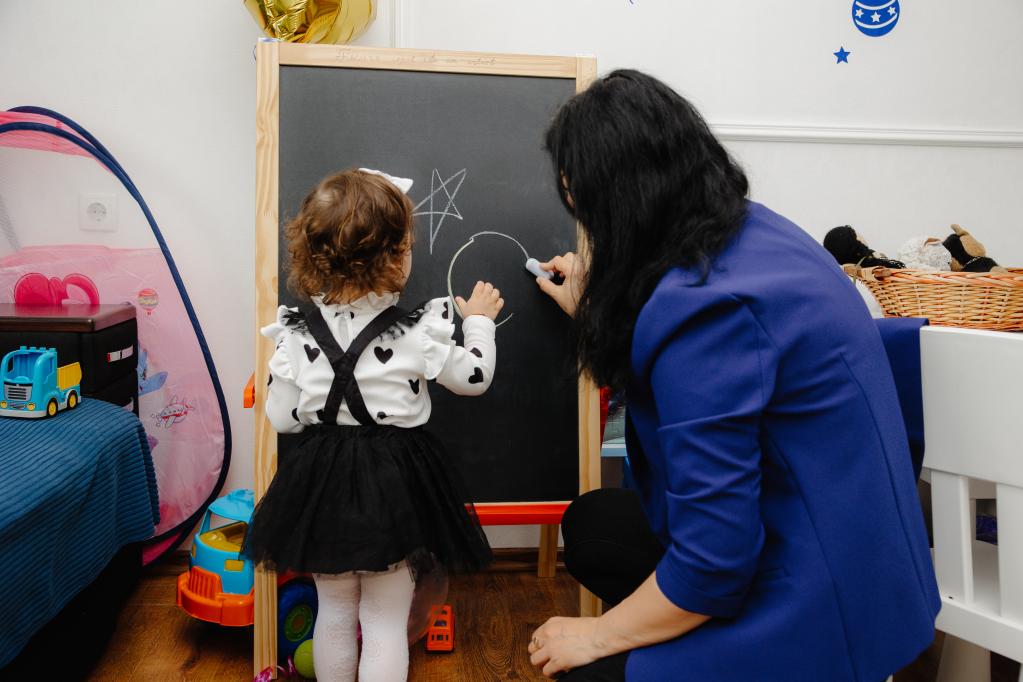
Story
28 June 2024
Bogdana, survivor of violence: "Cash assistance saved my life"
Over the past two years, more than 300 girls and women from Moldova and refugees from Ukraine, survivors of gender-based violence (GBV), have enjoyed comprehensive assistance and financial support within the Violence Case Management Program, piloted by UNFPA, which helped them overcome situations of abuse and build a new life.Bogdana*, a citizen of Ukraine, is one of these women. Arriving in the Republic of Moldova because of the war, she found refuge in her in-laws' house, but the peace did not last long, because her husband kicked her out of the apartment during the winter, even with the child."The war made me feel even more helpless. I went through many hard moments, beatings, swearing, humiliation. An acquaintance advised me to go to the Community Center, where I was helped and included in a special program for women in my situation," she told us.The Violence Case Management Program is a complex support mechanism for women victims of violence who need a lifeline to continue their lives in difficult circumstances and lay the foundations for a safer future. Developed by the UN Population Fund (UNFPA) in partnership with A.O. "Artemida" and in collaboration with the Ministry of Labor and Social Protection, this Program has several essential components, which ensure the complex rehabilitation of victims and help them escape abuse. An essential element in this process is financial aid, which is often the lifeline for women."Thanks to this financial aid, I was able to move to Chisinau for oncological medical investigations and undergo treatment, and with part of the money I rented a room where I now stay with my child."Financial assistance in violence case management has a beneficial effect on survivors' health, safety and access to violence prevention services. This is only part of a larger process that includes case identification, needs assessment, intervention planning, referral to other services, case monitoring and supervision.Silvia*, another survivor of violence, endured several acts of cruelty during her marriage: "Following the last act of violence, my hand was fractured and I had to borrow money to have an operation in Chisinau. Thanks to this Program in which I was included, I received free legal assistance and psychological counseling, and with the help of financial support, I had the opportunity to undergo several rehabilitation procedures at a hospital in the capital, pay for my transport and have a life independent with my child", says the woman.The granting of financial aid is based on the assessment of the real needs of each person and is carried out by bank transfer. Assistance is provided either as an emergency for immediate needs or in installments, depending on the duration of the need for support.“Cash assistance gives women the freedom to choose. Women's lives and well-being are put at risk in the absence of options, especially in crisis situations. This is especially true for women who already face heightened risks of violence. Interventions empower vulnerable women to use the money they give as part of an integrated, survivor-centred approach. Cash allows for flexibility, it provides crucial support to vulnerable groups in a more flexible, tailored and discreet way than other types of assistance," said Violeta Terguță, GBV Program Analyst at UNFPA."Financial support is vital help for victims of violence, giving them the support and resources they need to overcome trauma and regain control of their lives. By facilitating access to specialized counseling, safe shelters and legal assistance, we significantly contribute to the empowerment of affected women, allowing them to rebuild a safer and more independent future", said Simion Sîrbu, Director of A.O. "Artemida".Cash assistance for survivors of gender-based violence is a crucial element in the management of cases of violence and is being implemented in the Republic of Moldova from 2023, as part of a pilot program carried out by A.O. "Artemida" in partnership with the United Nations Population Fund, and is part of the UNFPA support offered to the Government of the Republic of Moldova, in response to the refugee crisis.*Names have been changed to protect identity.
1 of 5
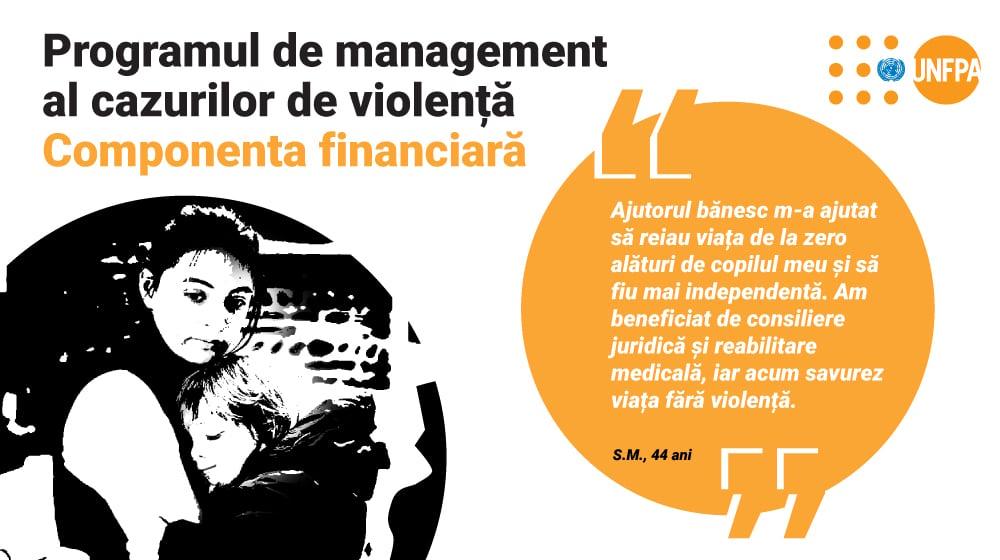
Press Release
26 July 2024
Analysis of the table grape value chain will provide a roadmap for sector growth
The activities of the project will include field interviews with key players along the grape value chain as part of the initial analysis. The project will develop a comprehensive investment plan that will both encourage new financial resources and facilitate the smooth integration of this value chain into the current European Union development processes. It will establish five Farmer Field Schools across the country that will serve as platforms for practitioners to learn and adopt sustainable production techniques and marketing innovations. A knowledge hub will also be established, offering a repository of information pertinent to the table grape sector. Building on a technical assistance agreement signed in February 2024, this initiative is part of FAO's global "One Country One Priority Product" (OCOP) programme. Moldovan table grapes, designated as the nation's flagship product under the FAO programme, are the focus of an in-depth analysis, utilizing the innovative Agrifood Systems Transformation Accelerator (ASTA), a methodology developed and implemented jointly by FAO and the United Nations Industrial Development Organization (UNIDO). ASTA bridges the gap between agriculture and industry, recognizing the interdependence of these sectors in promoting inclusive and resilient food systems. The methodology will be instrumental in analysing the entire table grape value chain, from production to consumption, offering a holistic framework, considering economic, social, and environmental factors alongside traditional agricultural concerns.Raimund Jehle, FAO Representative in the Republic of Moldova said that "by leveraging innovative approaches like the Agrifood Systems Transformation Accelerator, we are empowering stakeholders across the table grape value chain to make informed decisions, attract investments, and implement strategies that benefit everyone, from farmers to consumers.""ASTA is not just a methodology; it's a catalyst for change," explained Pedro Marcelo Arias, FAO economist and the regional OCOP Coordinator. "It provides a roadmap for sustainable growth, enabling the Republic of Moldova to capitalize on its rich viticultural heritage and produce high-quality table grapes that meet the demands of both domestic and international markets."“The Agrifood Systems Transformation Accelerator is not only interested in developing reports to store on bookshelves but also in identifying investment opportunities and channeling them into specific projects,” added Dona Scola, National Country Programme Coordinator at UNIDO. “In the Republic of Moldova, ASTA aims to enhance value addition in the table grape sector by promoting agroprocessing, while simultaneously covering green and inclusive angles. This enables table grape producers, including smallholder farmers, to compete in local, regional, and international markets.”The Moldovan Minister of Agriculture and Food Industry, Vladimir Bolea, emphasized the importance of the sector and its development, saying that, "table grapes are a very important part of the economy of the Republic of Moldova. We produce approximately 130 000 tonnes annually, of which 60 percent are exported. The prices obtained by farmers in recent years have been very good. All these aspects make us believe that the production of table grapes has a very promising future. FAO has supported us by developing a program to analyse value chains, how we grow grapes, and diversifying varieties. From this baseline, we will develop a clear and well-defined approach for the production, growth, promotion, and export of table grapes, as well as the development of agriculture in general." More on this topicEvent: Workshop: Promoting long-term, sustainable, green development and resilience of the table grape value chain
Regional Knowledge Platform on One Country One Priority Product (OCOP) in Europe and Central Asia
Investment accelerates resilient and sustainable agrifood sector in Republic of Moldova
Regional Knowledge Platform on One Country One Priority Product (OCOP) in Europe and Central Asia
Investment accelerates resilient and sustainable agrifood sector in Republic of Moldova
1 of 5
Press Release
26 July 2024
Criuleni Health Center has a modern radiology and medical imaging laboratory, thanks to support provided by the European Union and UNDP
The services offered by the new medical equipment will benefit the residents of the Criuleni and Dubăsari districts, including residents of the left bank of the Nistru River. The purchase of a radiology and imaging station, including the renovation works, was made possible with the support of the European Union Confidence Building Measures Programme, implemented by UNDP."The old microradiography machine, installed in 1987, has not been functional since 2022. During the pandemic it worked maximally, but with great difficulties. We had to contract the services from the district hospital which, due to the high volume of investigations, often deteriorated. With the installation of the new equipment, we will have the opportunity to investigate more population from risk groups from Criuleni and Dubăsari districts," said Violeta Panico, head of the Criuleni Health Center. The new X-ray machine is connected to a computer that keeps electronic archive for 1,000 films, as well as a medical film printer. Moreover, individual radiation protection equipment was provided for the laboratory staff.In addition to the purchase of the new X-ray machine, renovation and refurbishment works were carried out in the laboratory. The electrical, heating and ventilation networks were replaced. The finishing of the radiology cabinet was carried out in accordance with the new sanitary standards. The laboratory was equipped with technologically advanced X-ray resistant furniture."There is a huge difference between old and new equipment. Now we work in very good conditions and benefit from modern equipment. The level of radiation is 20 times lower than before, which allows us to diagnose a larger number of patients and significantly reduce the waiting time," said Dumitru Cara, an imaging doctor at the Criuleni Health Center."The first time I come to the new Roentgen, we'll see how it goes. Until now we used to go to the old one because we need to undergo the X-ray once a year, that's what they ask us to do at work," says Irina, a cook.
"Now we hope it will be better, clearer images. We schedule in advance and come to the center when needed," adds Anatol from Oxentea village.More than 60,000 patients, including from the left bank of the Nistru River, are consulted annually at the health centre in Criuleni. Since 2009, the EU has funded a number of projects to improve the healthcare sector in the region, providing vital equipment and renovating five health centres in the security zone, the hospital in Rezina and the hospital in Criuleni. In addition, exchanges of experience between specialists and health professionals from both banks of Nistru River have strengthened cooperation and improved the capacity of medical staff. In total, on the right bank alone, eight health facilities have been renovated, with investments of over €1 million, benefiting around 40,000 people on both banks.
"Now we hope it will be better, clearer images. We schedule in advance and come to the center when needed," adds Anatol from Oxentea village.More than 60,000 patients, including from the left bank of the Nistru River, are consulted annually at the health centre in Criuleni. Since 2009, the EU has funded a number of projects to improve the healthcare sector in the region, providing vital equipment and renovating five health centres in the security zone, the hospital in Rezina and the hospital in Criuleni. In addition, exchanges of experience between specialists and health professionals from both banks of Nistru River have strengthened cooperation and improved the capacity of medical staff. In total, on the right bank alone, eight health facilities have been renovated, with investments of over €1 million, benefiting around 40,000 people on both banks.
1 of 5
Press Release
26 July 2024
UNICEF and IOM: EU Support Enhanced Access to Essential Services for Families in Moldova, including Refugees
In collaboration with the Ministry of Labour and Social Protection (MLSP) and Chisinau Municipality, UNICEF has positively impacted the lives of approximately 59,000 children and their caregivers, including refugees, providing higher-quality child protection and social services. Over half of these beneficiaries are girls and women. UNICEF and IOM have also played a pivotal role in assisting the government to develop and adopt crucial decisions and regulations, enhancing child protection and social assistance frameworks. Their efforts include recruiting additional consultants and experts to support central authorities."As we work to support the most vulnerable children and families, we are witnessing significant improvements in the provision of protection, education, and health services. This collaborative partnership is not only addressing immediate needs but also strengthening systems and laying the groundwork for long-term, sustainable development. By enhancing the quality of these essential services, we are making a profound and lasting impact on the lives of thousands of children and their caregivers. Our collective endeavors are fundamentally transforming the landscape of child welfare in Moldova, building a more resilient and promising future for all children," said Maha Damaj, UNICEF Representative in Moldova.UNICEF's focus on education has involved training more than 2,000 educators to support and integrate Ukrainian children into Moldova's formal and non-formal education systems. This initiative has included early childhood education staff trained in playful learning pedagogy, child-centred approaches, and psychosocial support. As a result, around 26,000 children have developed vital soft skills, such as creativity, resilience, and emotional intelligence. Thirty thousand children will soon acquire social and emotional skills, including empathy, acceptance, and tolerance. Thanks to EU support, IOM has rehabilitated three playgrounds and equipped two schools, fostering social cohesion among local and Ukrainian children. UNICEF has contributed by building the capacity in STEAM fields for adolescents from the most disadvantaged areas, addressing gender inequalities, and reshaping public perceptions of the role of young people in information and communication technology.“Thanks to this EU-funded project, IOM in Moldova has achieved tangible and impactful results in key sectors such as protection, health, education, micro-business through direct and policy-level assistance, in collaboration with Moldovan institutions. Playgrounds mean more opportunities for Ukrainian refugees, migrants and Moldavans to meet, interact and share valuable time within the local community. Sports equipment for school students also means psycho and physical well-being and education for a healthy life. Supporting Moldova's health system and breast cancer prevention, early detection and diagnosis means strengthening quality services for Moldovans and refugees and long-term response actions. Financial assistance to microbusinesses for both Ukrainian and Moldovan refugees means that Moldova's socio-economic development can come through joint efforts and collaborations. Thank you, European Union,” said Lars Johan Lönnback, outgoing IOM Moldova’s Chief of Mission. In the health sector, IOM, in partnership with the National Health Insurance Company and the Ministry of Health, has ensured Ukrainian refugees' access to health services. More than 3,400 refugees have received emergency healthcare, and around 1,300 have accessed primary healthcare. Additionally, seven patients have undergone 920 dialysis sessions, and 511 patients have received cancer care. IOM has also delivered cancer medicines and medical equipment to the Oncology Institute. Furthermore, IOM has created socio-economic opportunities for vulnerable families in Moldova, including refugees. This includes cash for skills training for 129 Ukrainian refugees and local community members, online skills training for 20 individuals, and cash for microgrants for 90 participants. Additionally, 407 people have received job counselling sessions, and 20 entrepreneurs have benefited from grants.For more details read this document UNICEF and IOM: better life for Moldovan and Ukrainian families***For more information, please contact:IOM Moldova: Riccardo Severi, Communications and Public Information Officer, rseveri@iom.int UNICEF Moldova: Valeria Dumitriu, Communications Officer, vdumitriu@unicef.org
1 of 5
Press Release
28 June 2024
Deadline extended - Call for applications open for the 6th edition of the UN Diversity Internship Program for persons belonging to marginalized groups
The announced UN Diversity Internship Program comes as an effort to enable people belonging to groups vulnerable to discrimination to acquire necessary skills for further employment opportunities. Under this program, women, men, and persons of diverse gender identities from marginalized groups will be provided an opportunity to undergo four to six months of internship within UN Agencies present in Moldova and acquire experience in relevant areas of UN’s work. The candidates are expected to be selected through a competitive process, based on submitted applications.All interested candidates from marginalized groups, including but not limited to persons with disabilities; ethnic, linguistic, or religious minorities, including ethnic Gagauzians, Ukrainians, Bulgarians, Roma, Jews, Muslims, and people of African descent; people living with HIV; religious minorities; LGBTQI+, shall have the following basic application package for further online submission via links provided below:Letter of motivation / intention, explaining why the applicant seeks a particular internship position (which shall be specifically named) and how it can help them build further their career and/or advance personal development objectives. In the letter, the applicant shall refer to their affiliation to a particular marginalized group and any eventual difficulties encountered in employment or studies because of the specific affiliation;Curriculum Vitae including a brief description of candidate’s studies and previous relevant experience. Please include information of any needs for any adjustments necessary at the internship venue and workstation;Reference Letter from non-governmental organizations representing the interests of people from marginalized communities (is much appreciated, if possible, to be presented). Additional information or application documents may be requested for some of the announced internship positions, as per the requirements of the online application system and / or respective Terms of Reference. The documents need to be submitted in Romanian, or Russian, or English languages, as required in the respective job advertisement.A person can apply for one or more announced internship positions. Deadline for submission of applications – 31 July 2024Applications will be reviewed by an Evaluation Panel, composed of representatives from the relevant UN agencies, and all short-listed candidates will be contacted within the following two weeks for an eventual interview. APPLY FOR THE UN DIVERSITY INTERNSHIP POSITIONS TO THE FOLLOWING LINKS:UNICEF_Operations Intern. For any questions or technical assistance, you can reach the HR Unit via email: chisinau@unicef.org UN Human Rights (OHCHR) and UNICEF_ Programme Management (hosted by two agencies). For any questions or technical assistance, you can reach OHCHR or UNICEF via email: ohchr-moldova@un.org or chisinau@unicef.org UNDP_ Administrative and Logistical Support. For any questions or technical assistance, you can reach UNDP via email: hr.md@undp.org UNAIDS_ HIV Prevention Intern. For any questions or technical assistance, you can reach UNAIDS via email: plamadeala@unaids.org UNFPA_ Internal Program and Communication Assistant. For any questions or technical assistance, you can reach UNFPA Moldova team via email: manascurta@unfpa.org UN WOMEN_ EVAW Program Support. For any questions or technical assistance, you can reach UN WOMEN via email: ana.puscasu@unwomen.org
1 of 5
Press Release
19 July 2024
Youth from Both Banks: Reviving Peacebuilding Efforts
The programme "Youth for Peace and Equality" implemented by a local NGO “Initiatives 4 Peace”, in partnership with UN Women, brings together youth from both banks to participate in activities that equip them with the resources, skills and networks needed to promote peace. So far, these activities have included IT courses for girls, the Young Women for Peace Leadership School, the Hackathon/Peace Accelerator Lab and a Summer Camp for Young Peacebuilders.A Digital Peacebuilding ApproachAt the Hackathon/Peace Accelerator Lab in November 2023, Elena and Daria, Team #3 from Tiraspol emerged among winners with their ‘Tell Me’ app, designed to support survivors of gender-based violence. The app connects survivors with women's organizations on both banks of the Nistru/Dniester River, offering anonymous reporting, quick responses, and an SOS button. Following Elena and Daria’s pitch, they collaborated with Ion Chislaru, a young programmer from the right bank, to further develop the app. Together, they presented their finished product at the Summer Camp for Young Peacebuilders held in July 2024."At the Hackathon, we brainstormed to identify common concerns for both banks, and we agreed on the issue of gender-based violence," says Daria. The app is rooted in the idea that topics related to violence are often taboo and not openly discussed, explains Elena. “Individuals with traumatic experiences often find it challenging to seek psychological help or to resort to law enforcement agencies and may choose to avoid doing so,” she says. The goal of the app is to provide a safe space for women to seek help and support, regardless of their location.The app's slogan is, "We regret that you're in the know. We're glad that you've found the strength to move on."“It's not cool that someone will need to use this app and even its SOS button,” says Elena. “It means something has happened and they’re having a traumatic experience, but life goes on and it's important to help people overcome these experiences because no one is immune.”“We really hope that people won’t need this app or quickly delete it,” says Daria. "But unfortunately, this app is important and necessary in our current reality, which is what drove us to create it.”Story of Resilience and TransformationValentina is a young entrepreneur from Tiraspol who is trying to expand her business. A survivor of domestic violence, she moved to Moldova from Kiev, Ukraine seven years ago with her son whom she is raising alone. Before arriving, Valentina worked as a chief engineer at the Kiev Energy Research Institute, where she was in charge of training staff at atomic power stations. Since her profession proved redundant in her new host community, Valentina utilized her physics expertise to turn her passion for chocolate into a new profession."I was and remain a physicist,” says Valentina. “I didn't learn how to make chocolate at university, but I know the impact of temperature on the taste of certain products. That's how I knew to experiment with drying fruits and nuts so that they taste delicious and retain their good-for-your-body properties at the same time."She enrolled in the Young Women for Peace Leadership School, organized by I4P in partnership with UN Women. Living in an area near Ukraine that is struggling with Russian aggression, Valentina says she can't stay detached."We women need to be more involved in decision-making processes,” says Valentina. “We cannot sit on the sidelines and suffer the consequences of conflict. We need to take action and support each other. I want to learn how to negotiate, how conflicts can be prevented both on a personal level and between states. We need to be prepared, and that is why I came to this school to learn and meet new girls and women who also share this goal."Valentina's enthusiasm and optimism led her to host a workshop on healthy food and chocolate at the Summer Camp for Young Peacebuilders. "I have been sugar-free for 10 years, and I share my experience with other people,” she explains. “I don't just sell chocolate; I promote health and happiness. A healthy, happy person is less aggressive and more open to peace."Valentina became an entrepreneur because it allowed her to work alongside her son, who inspires and empowers her to continue to fight for better opportunities. The main challenge she faces is expanding her business on the right bank. The Leadership School provided her with a supportive environment from international, governmental and civil society organizations, allowing her to strengthen ties and collaborations.At the Summer Camp for Young Peacebuilders, Oleg Serebrian, the Deputy Prime Minister for Reintegration, told the participants that the Republic of Moldova is an EU candidate country. “The resilience and determination of society are very important in this process,” he explained. “Activities like this, with young people represented from all over the country, are very important for our common future."The project’s participants attended meetings with Members of the Parliament, the Bureau of Reintegration Policies, the Equality Council, UN Women and the OSCE Mission to Moldova. During these discussions, they learned about the advantages of being involved in decision-making and peacebuilding processes and initiated a letter to the 2025 Finnish Chairpersonship of the OSCE, expressing their visions for a peaceful settlement to the Transnistrian conflict.
1 of 5
Latest Resources
1 / 11
Resources
02 July 2024
Resources
11 June 2024
Resources
05 June 2024
1 / 11

